Products You May Like
Discover how to build back muscle with our helpful guide to the muscular anatomy of your back, plus the best exercises to target each part…
The back is a major muscle group, but because you can’t see it in the mirror, it’s easy to dedicate more of your training time to your chest, shoulders and arms, and other muscles on the front of your body. This is a big mistake.
A strong, powerful back improves your physique, corrects your posture and prevents injury, especially if you spend a lot of time working on your chest. A weak back in relation to a strong chest, on the other hand, will pull your shoulders forwards, which not only looks bad but also, as with any muscular imbalance between antagonistic muscles, will inevitably result in pain and injury.
Related: Best dumbbell exercises for back workouts
Anatomically, your back runs from the bottom of your neck to the top of your buttocks, and is a complex muscular structure. The upper half is primarily involved in the movement of the shoulder blades, while the lower part works with your abs to provide support, stability and posture.
How your back muscles work
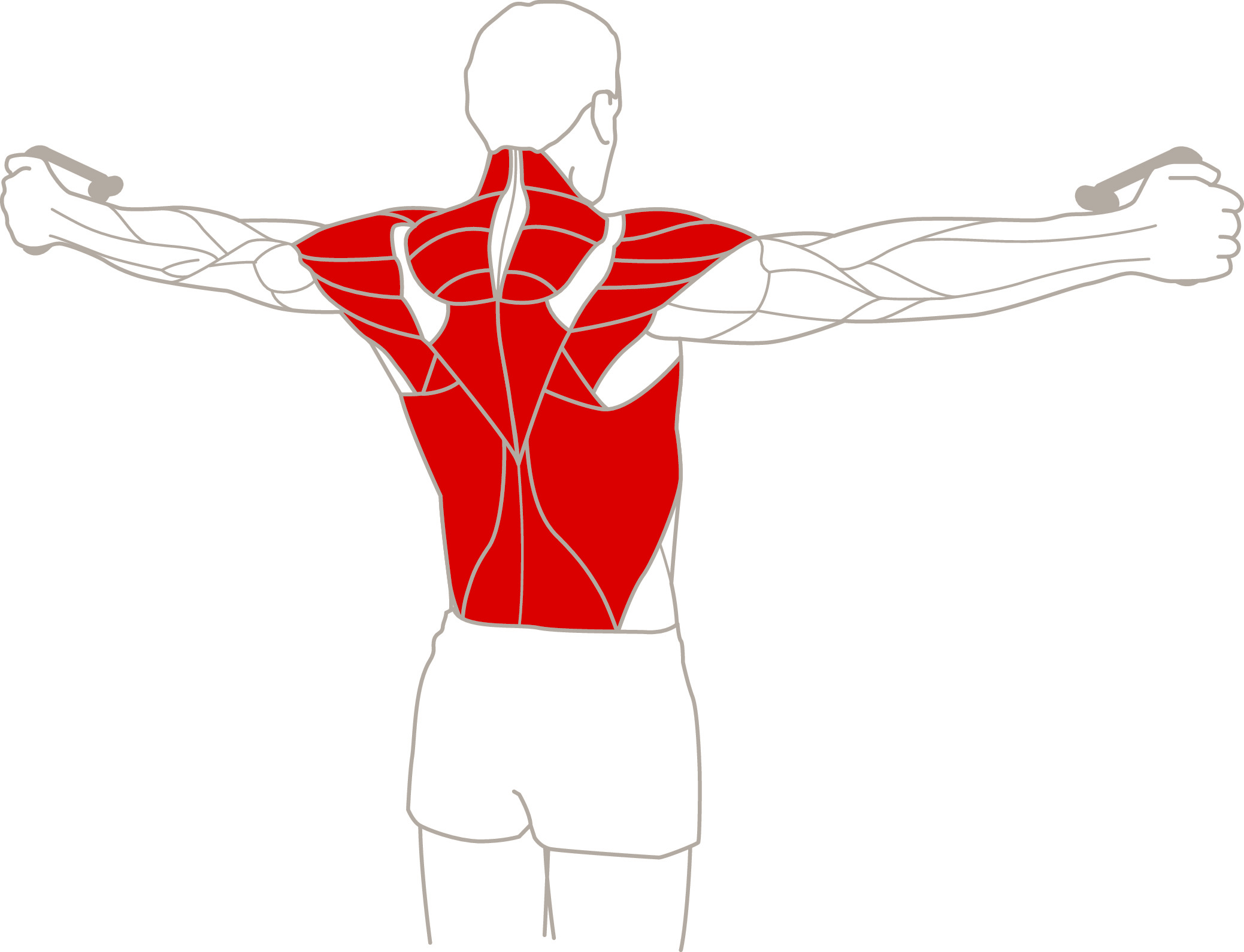
- The trapezius, or traps, is a diamond-shaped muscle that runs from your neck to your mid-back, and out to each shoulder joint. Its major role is to elevate and retract your scapula (shoulder blades).
- The rhomboid is a small, two-part, deep-lying muscle that is responsible for the retraction of the shoulder blades.
- The latissimus dorsi, or lats, is a larger, flat muscle partly covered by the traps. It is responsible for the extension, adduction, flexion and internal rotation of the shoulder joint.
- The teres major is a thick, flat muscle that assists the lats in moving your arms down towards your sides.
- The erector spinae is a group of muscles and tendons responsible for straightening the back and, with the abdominals, makes up the core that provides postural support and stability.
Learning how to target and build your back muscles is essential to getting a strong, balanced and injury-proof body. Training these muscles, especially your traps and lats, is also crucial to building a desirable V-shape torso, so never neglect back training if you want a bigger and stronger torso.
Related content:
- Back and leg superset workout
- 5 desk stretches to prevent back & neck pain
- Backpack workout: full-body circuit to build muscle
25 best exercises to build back muscle
- Pull-Up
- Negative Pull-Up
- Wide-Grip Pull-Up
- Weighted Pull-Up
- Bent-Over Barbell Row
- Reverse-Grip Bent-Over Row
- Dumbbell Bent-Over Row
- Reverse Flye
- Lat Pulldown
- Underhand Lat Pulldown
- Single-Arm Lat Pulldown
- Single-Arm Dumbbell Row
- Single Arm Cable Row
- Seated Cable Row
- Rope Face Pull
- Wide-Grip Cable Row
- Inverted Row
- Barbell Shrug
- Dumbbell Shrug
- Barbell Good Morning
- Two-Point Box
- Superman Raise
- Back Raise
- Weighted Back Raise
- Gym Ball Back Extension
Keep reading for full instructions on how to perform each back exercise…
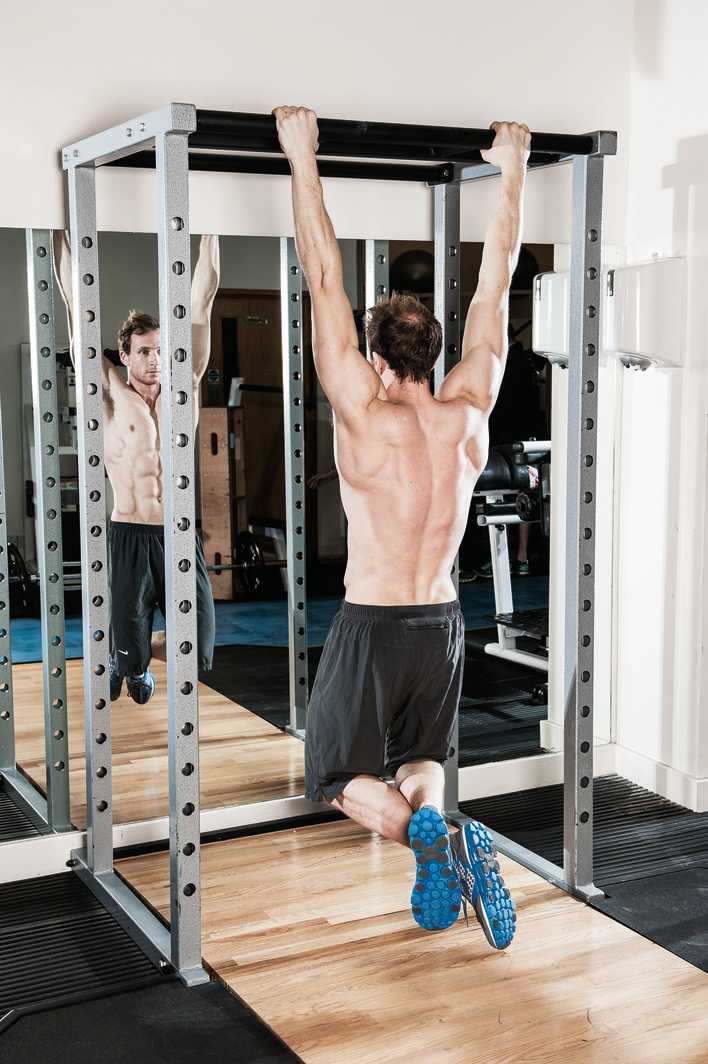
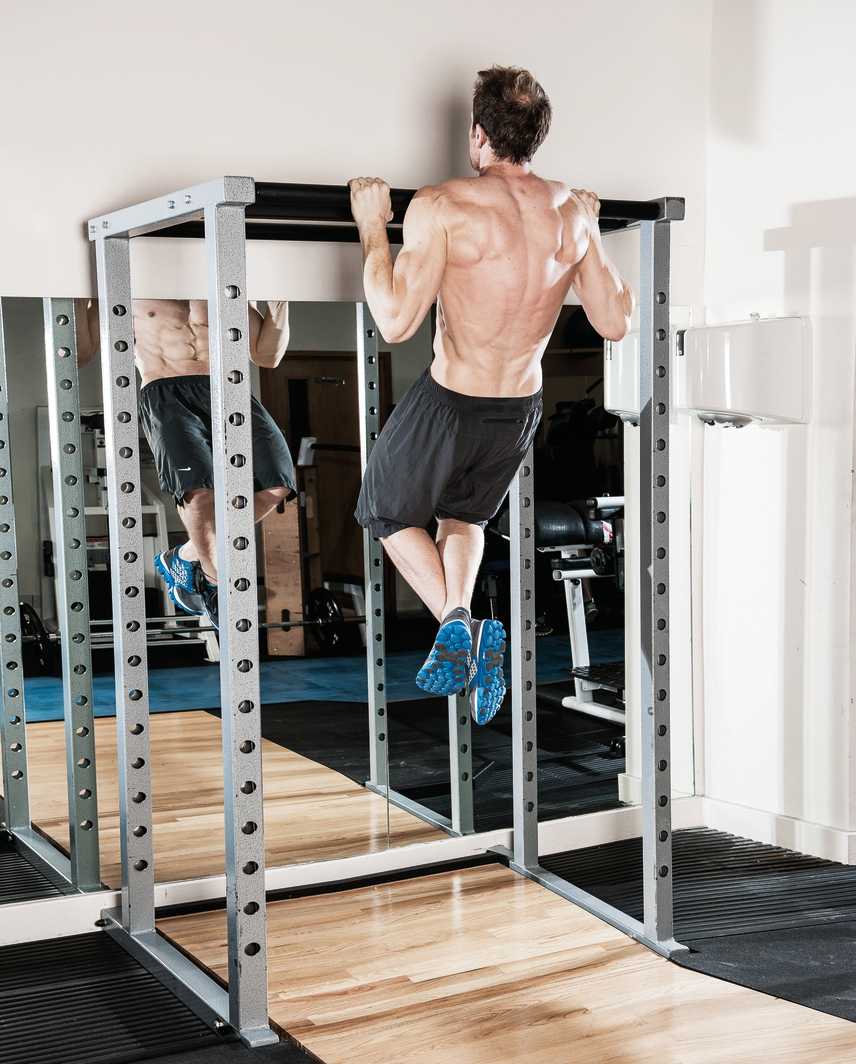
1. Pull-Up
The classic test of strength requires you to lift and control your entire bodyweight to hit and build all the major muscles of your upper back.
- Grab the bar with an overhand grip with your hands shoulder-width apart.
- Start from a dead hang with your arms fully extended.
- Pull yourself up by squeezing your lats together.
- Once your chin is higher than your hands, slowly lower back to the start.
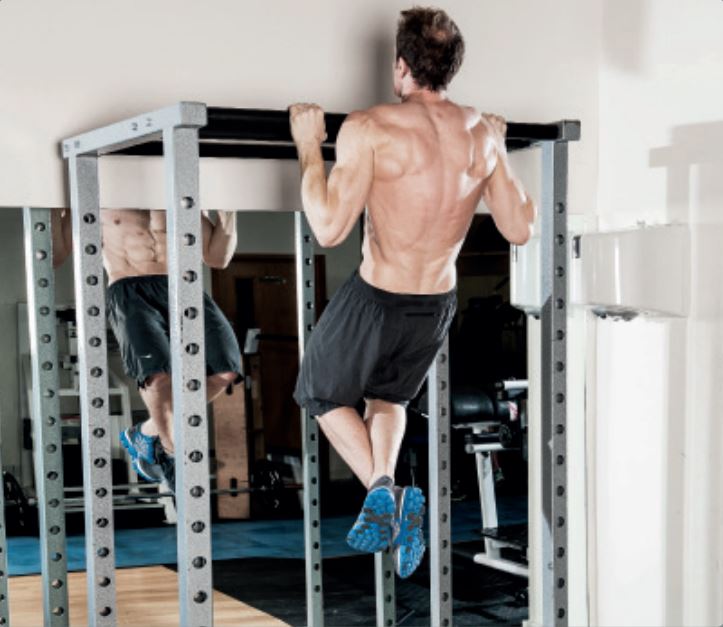
2. Negative Pull-Up
Jumping to the top position then slowly lowering yourself back down is a great way to build up the strength to perform full versions of the move.
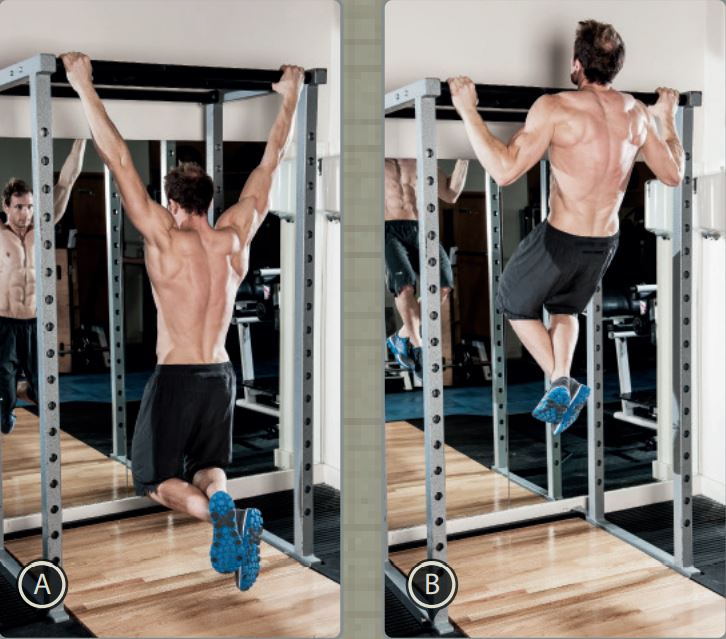
3. Wide-Grip Pull-Up
The wider the grip, the harder your upper back muscles have to work to raise you to the top position.
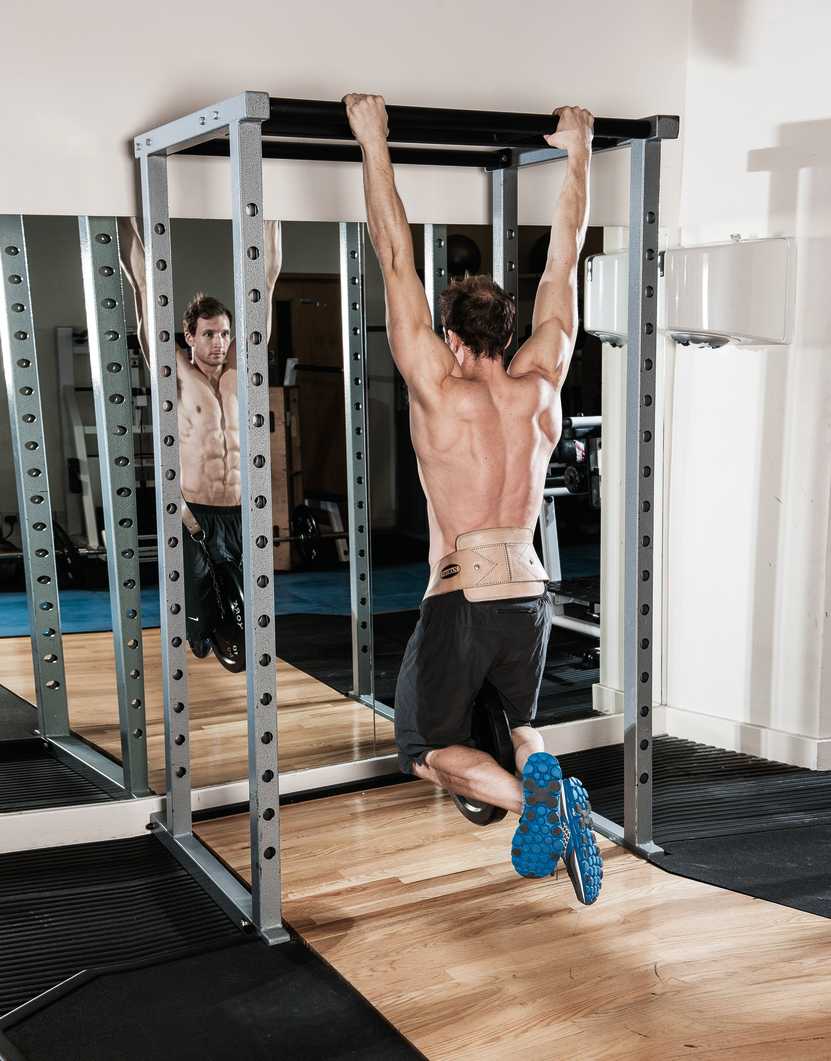
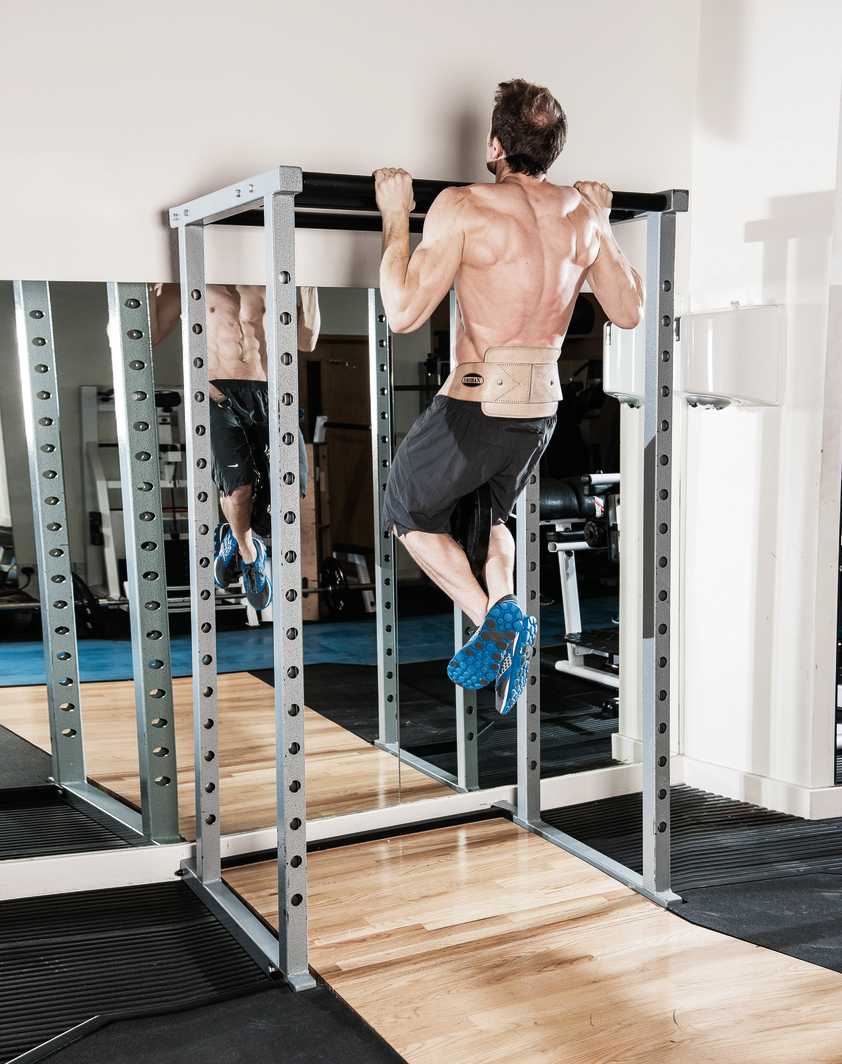
4. Weighted Pull-Up
Adding extra weight to this move makes it far harder and far more effective at building size and strength.
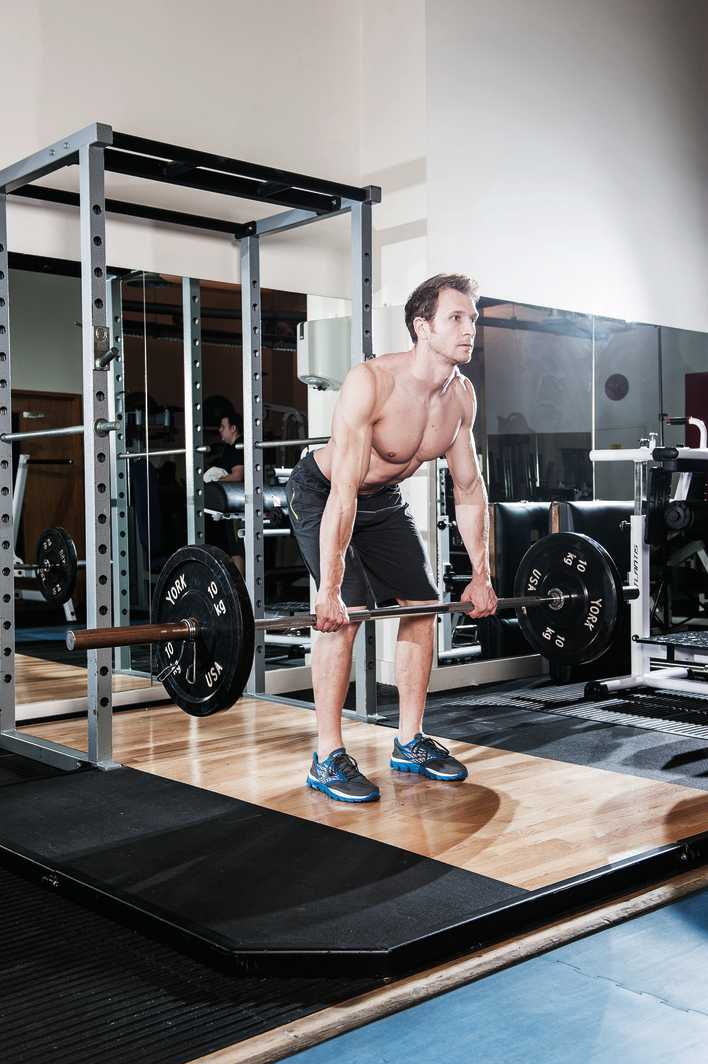
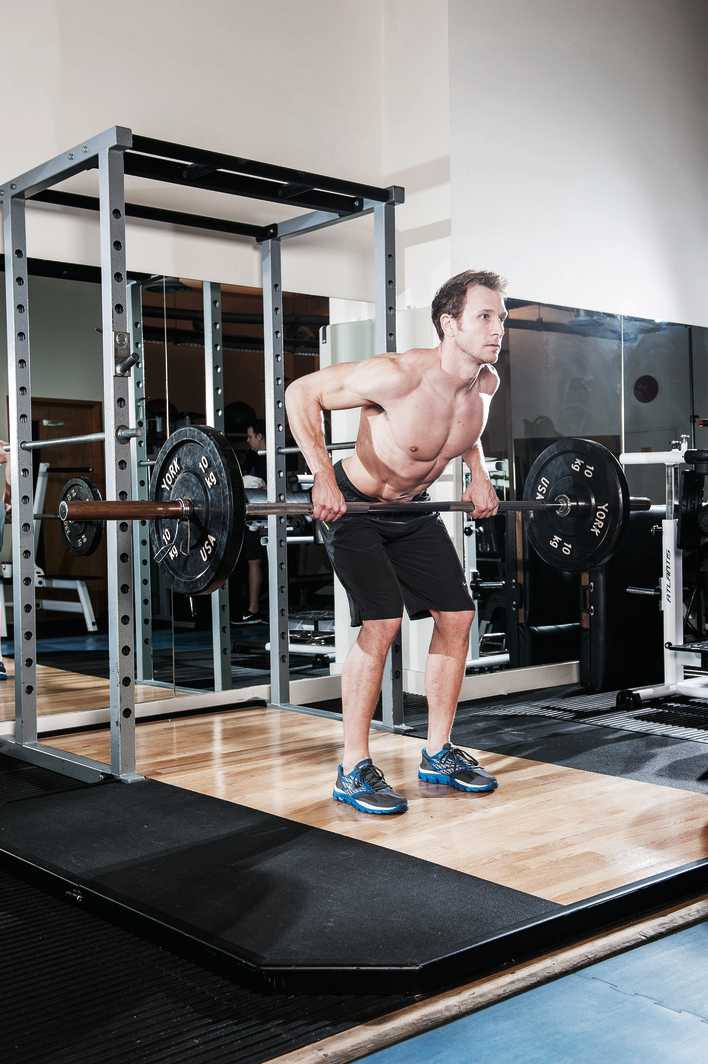
5. Bent-Over Barbell Row
One of the key moves for targeting your entire back, while also working your core, biceps and shoulders.
- Start with your core braced, your back straight and your shoulder blades retracted.
- Bend your knees slightly and lean forwards from the hips.
- Grip the bar with your hands just wider than shoulder-width apart, letting them hang at knee level.
- Pull the bar up to your lower sternum, retracting your shoulder blades to allow the bar to come up to your chest, then lower the bar slowly to the start.
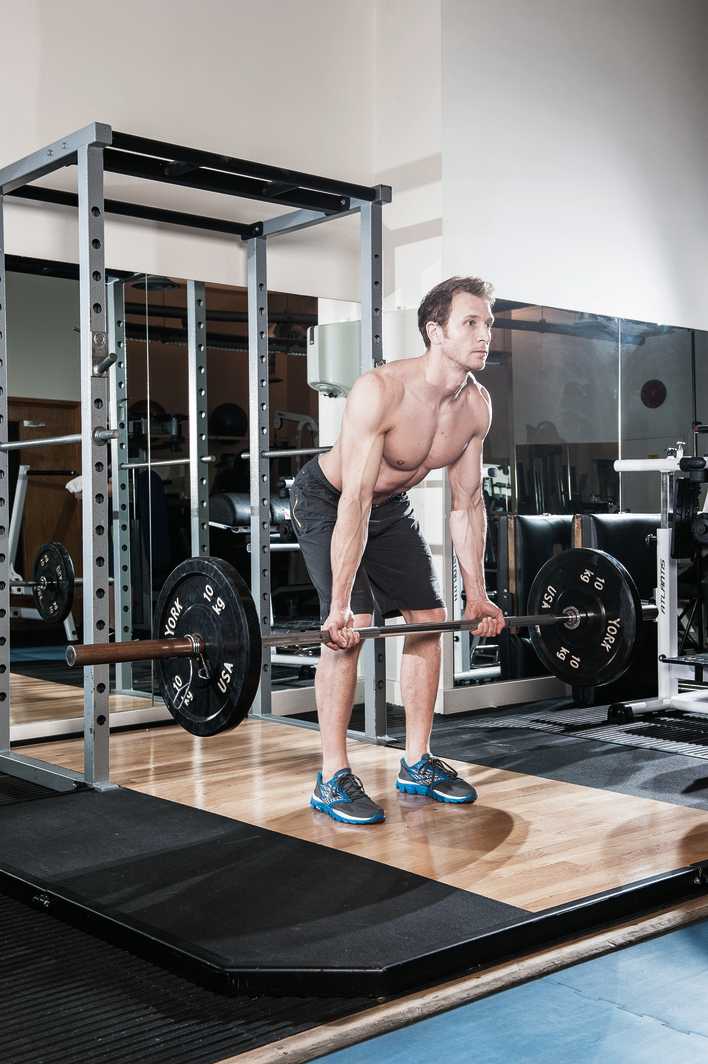
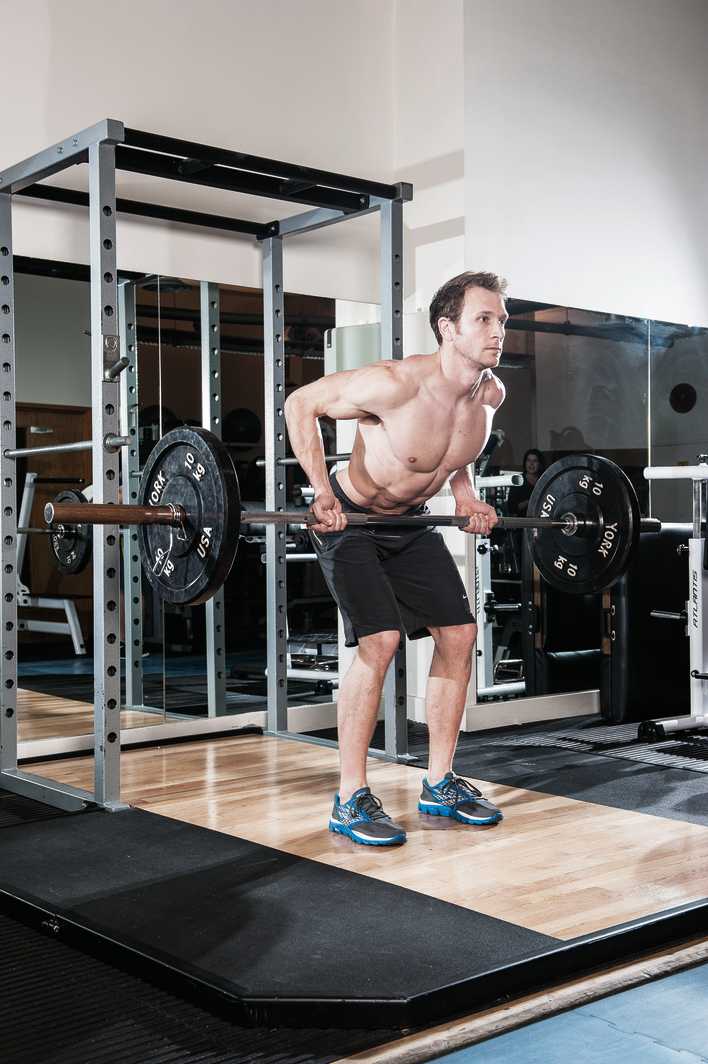
6. Reverse-Grip Bent-Over Row
Taking an underhand grip places more emphasis on your biceps.
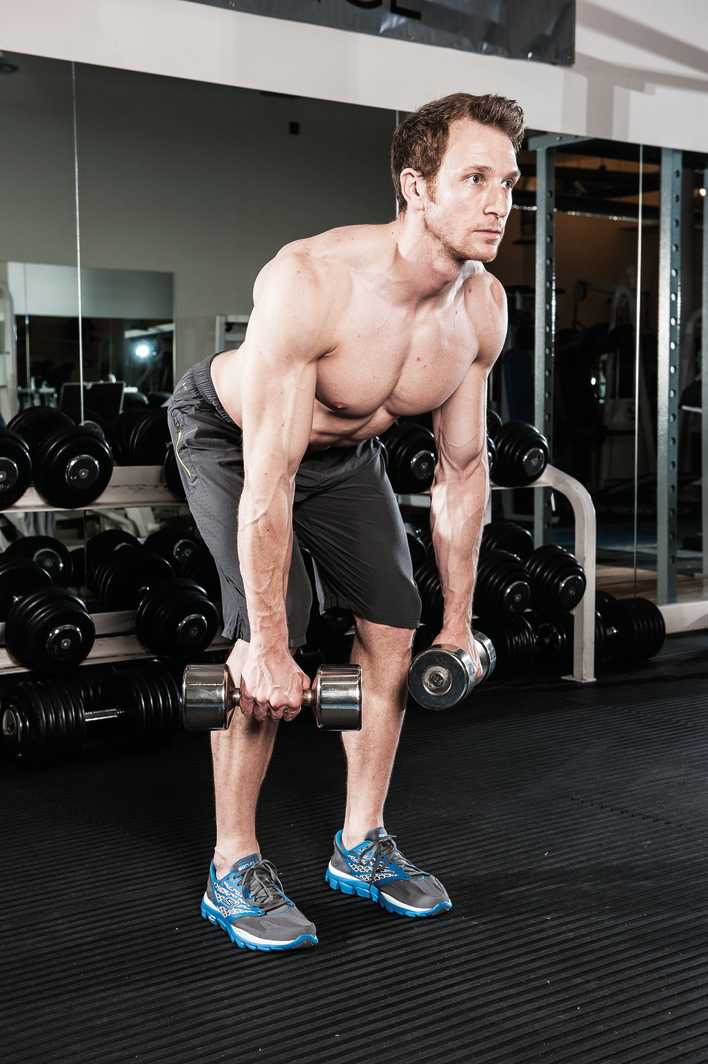
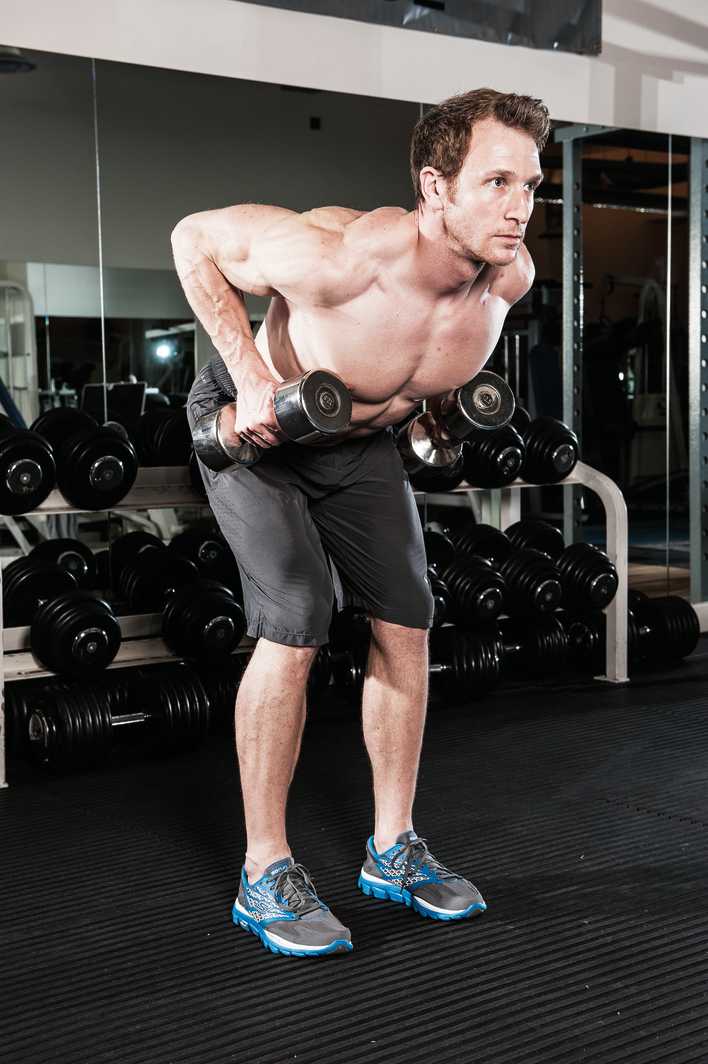
7. Dumbbell Bent-Over Row
Using dumbbells involves the same target muscles while preventing the stronger side of your body doing more than its share of the work.
Need a pair of dumbbells? Discover the best dumbbells for home workouts
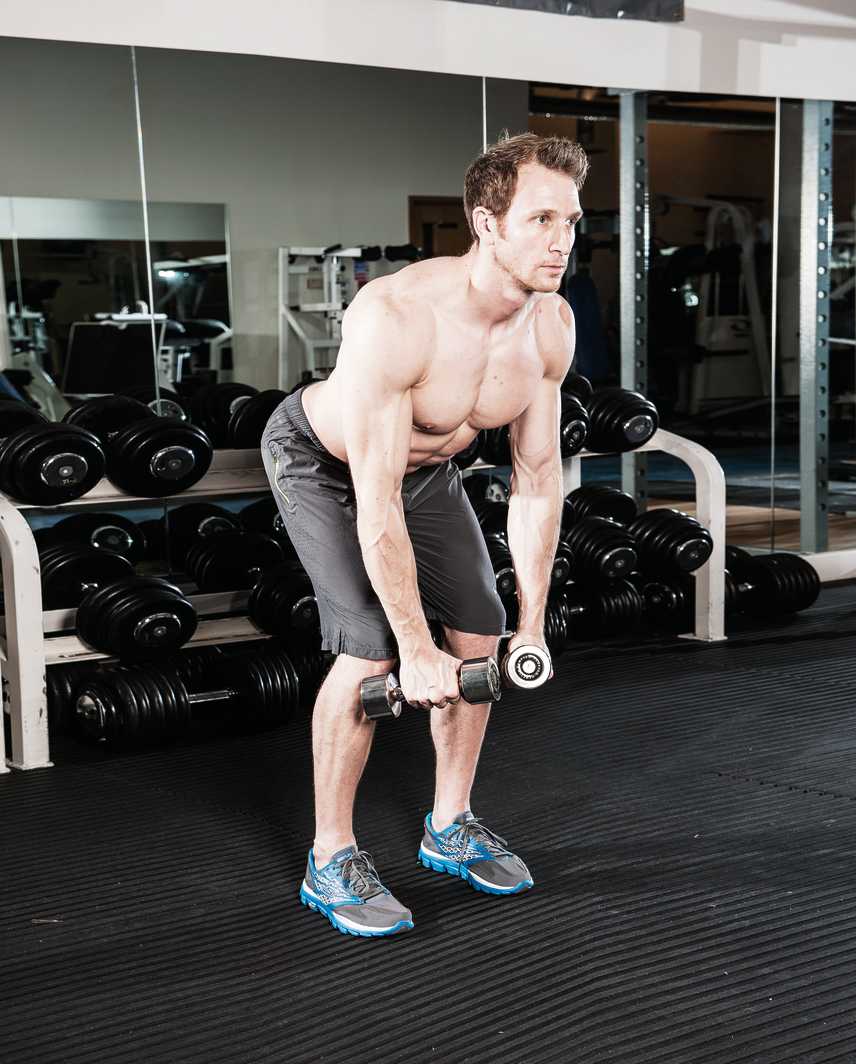
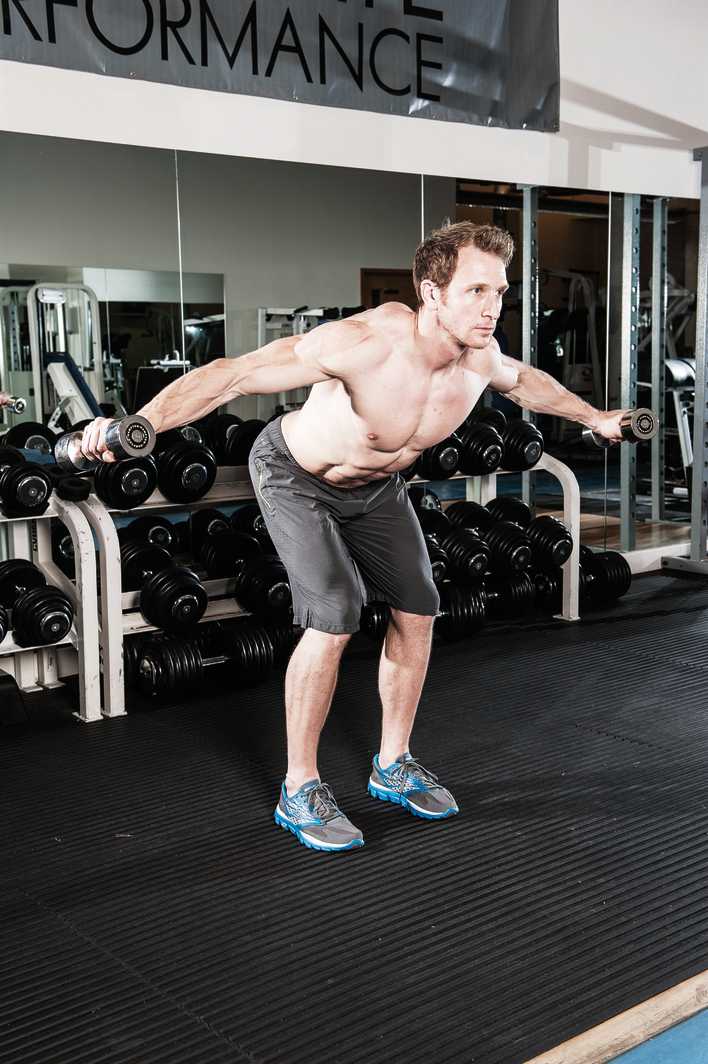
8. Reverse Flye
Keeping a slight bend in your elbows as you raise your arms to the sides works your shoulders as well as upper back and core.
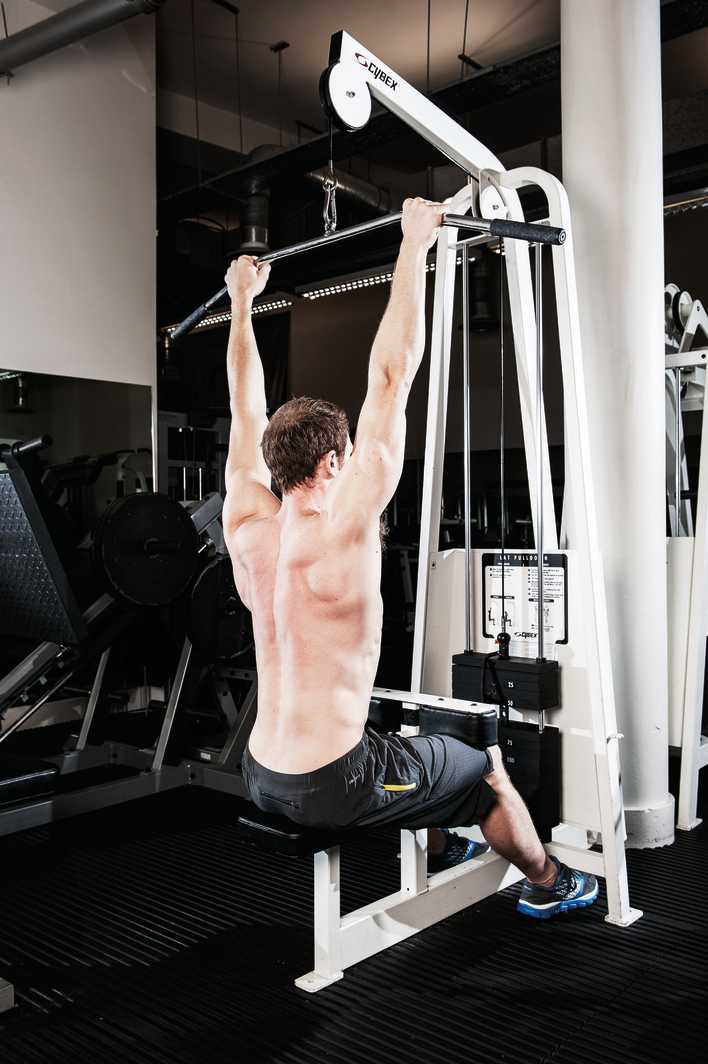
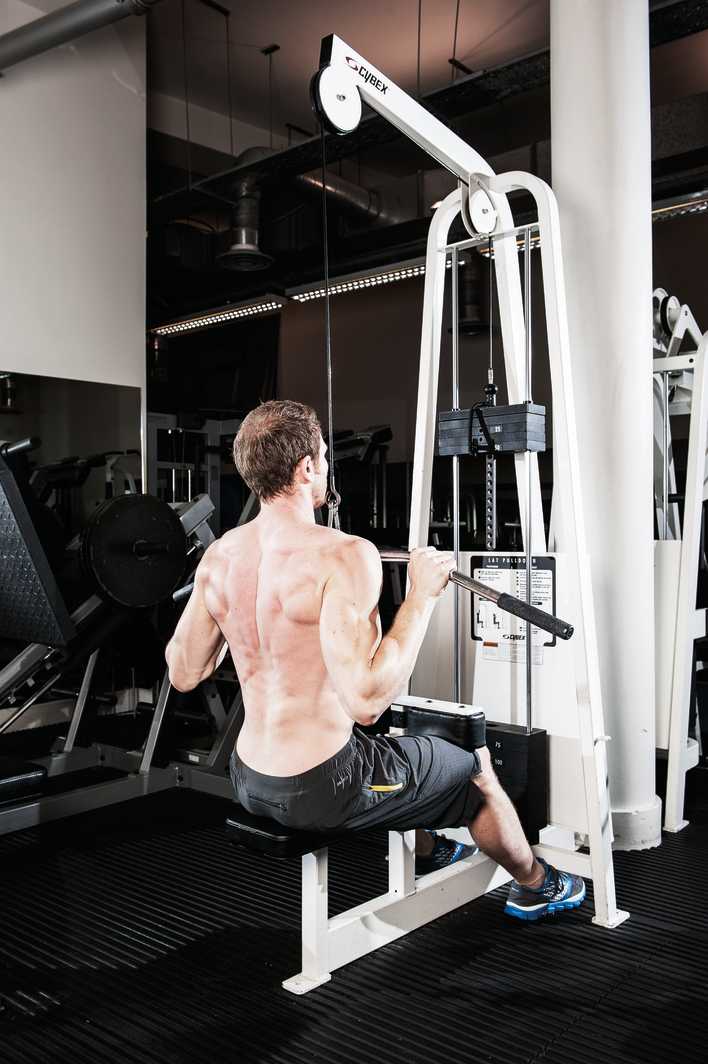
9. Lat Pulldown
This works the same muscles as the pull-up but the machine allows you to adjust the resistance to lift lighter or heavier than your bodyweight to build strength and muscle mass.
- Sit on the seat and take an overhand, wide grip on the bar.
- Look forwards, retract your shoulder blades and keep your torso upright.
- Pull the bar down in front of you until it reaches your upper chest. Don’t lean back to aid the movement.
- Squeeze your lats at the bottom of the move and return the bar slowly to the top.
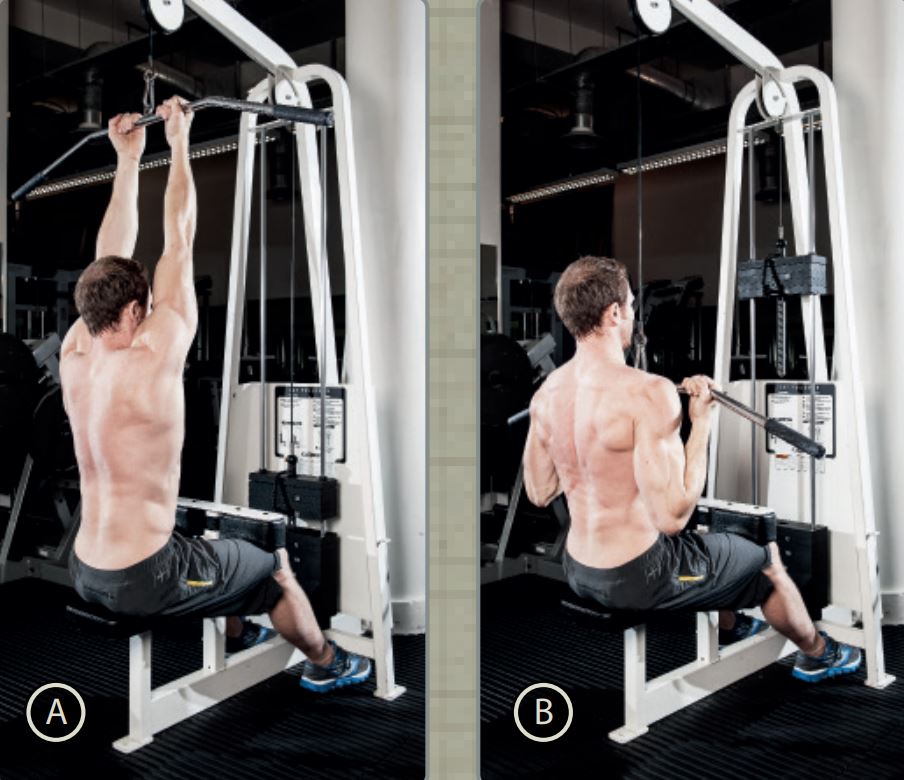
10. Underhand Lat Pulldown
Gripping the bar so your palms are facing your body brings your biceps into play more.
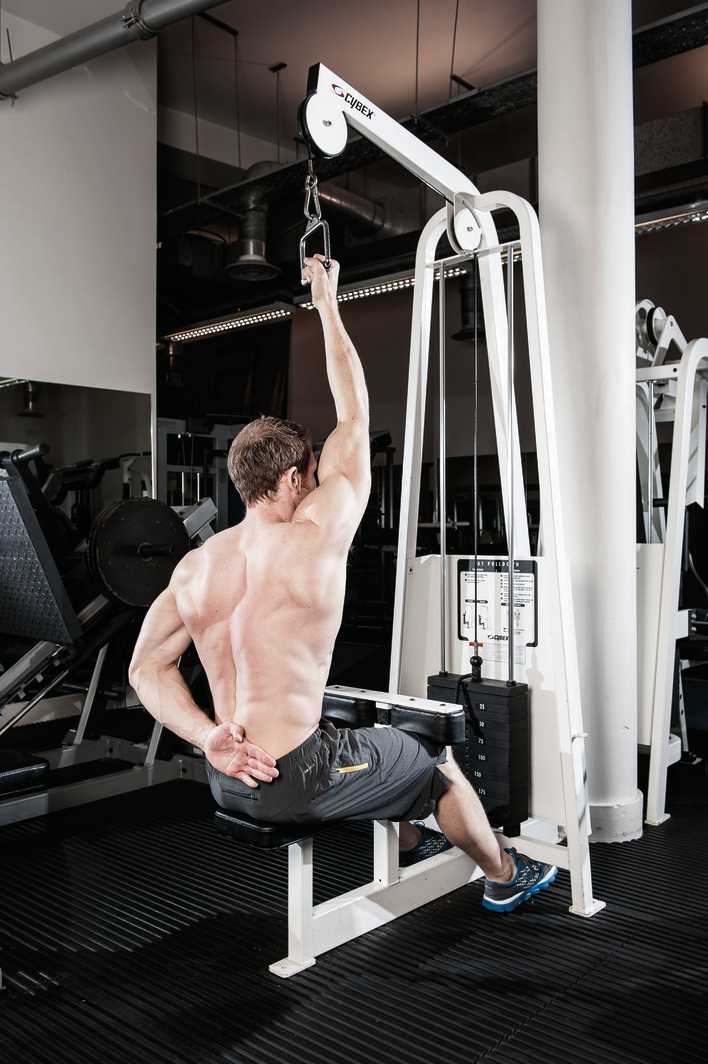
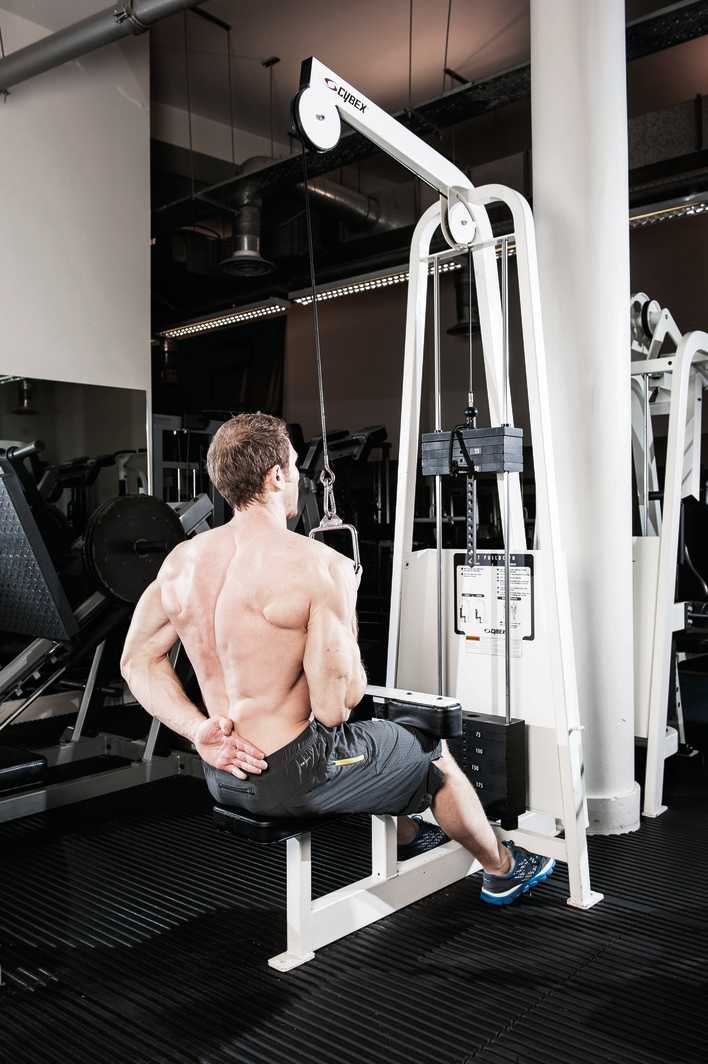
11. Single-Arm Lat Pulldown
Working each arm individually promotes balanced growth and prevents your stronger side from dominating the move.
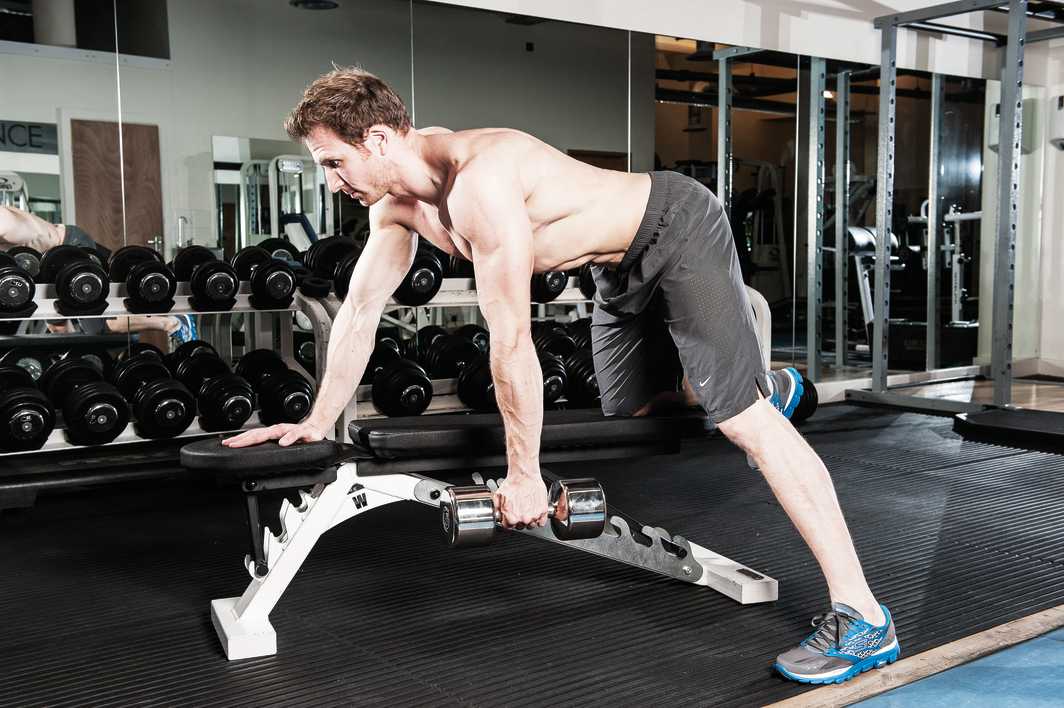
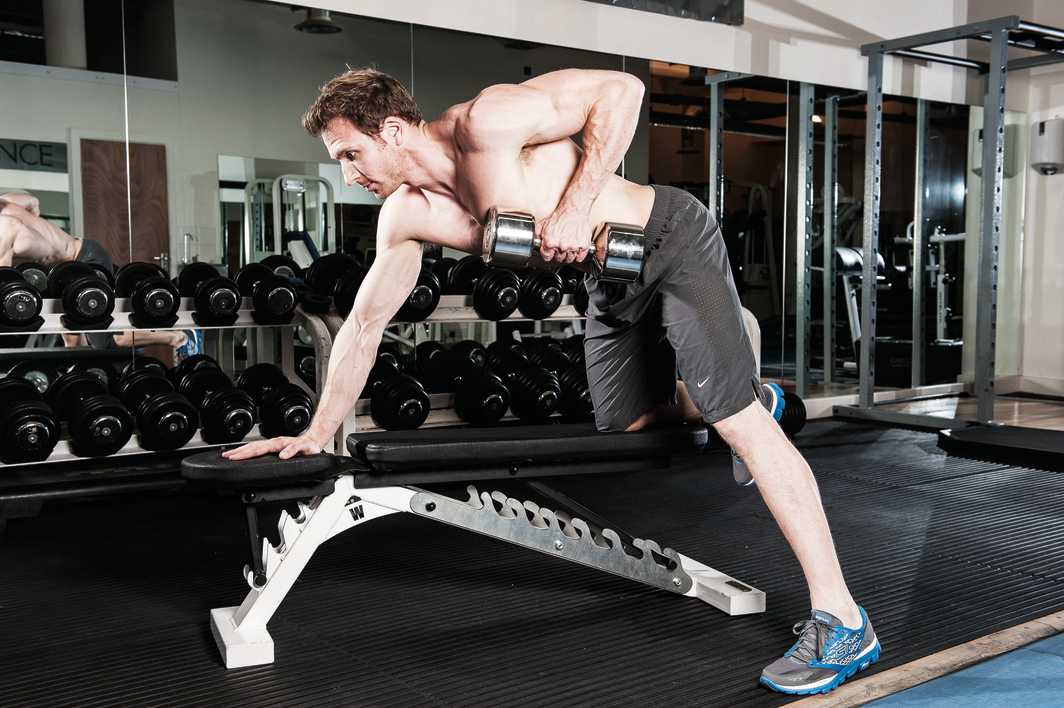
12. Single-Arm Dumbbell Row
This move allows you to go heavy while working both sides of your back and each arm individually for big muscle benefits.
- Place your right knee and right hand flat on a bench, with your left leg out to the side. Hold a dumbbell in your left hand with your arm hanging straight down.
- With a natural arch in your back and core braced, lift the weight towards your side, leading with the elbow.
- Pause at the top before returning to the start. Repeat on the other side.
Increase the weight as you go with our pick of the best adjustable dumbbells
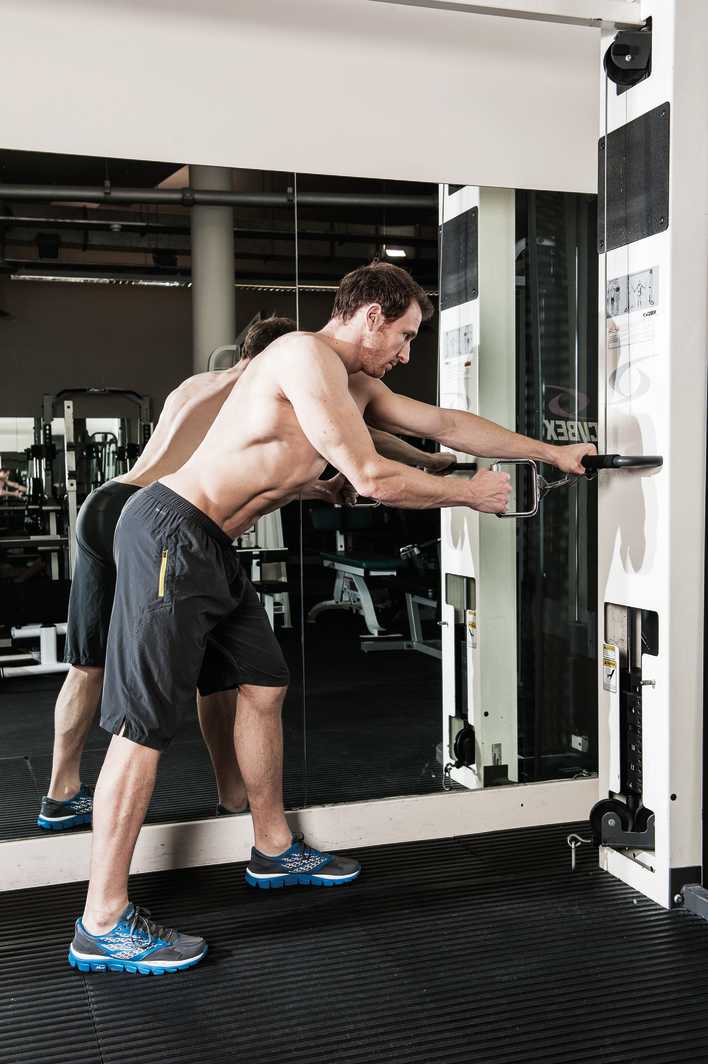
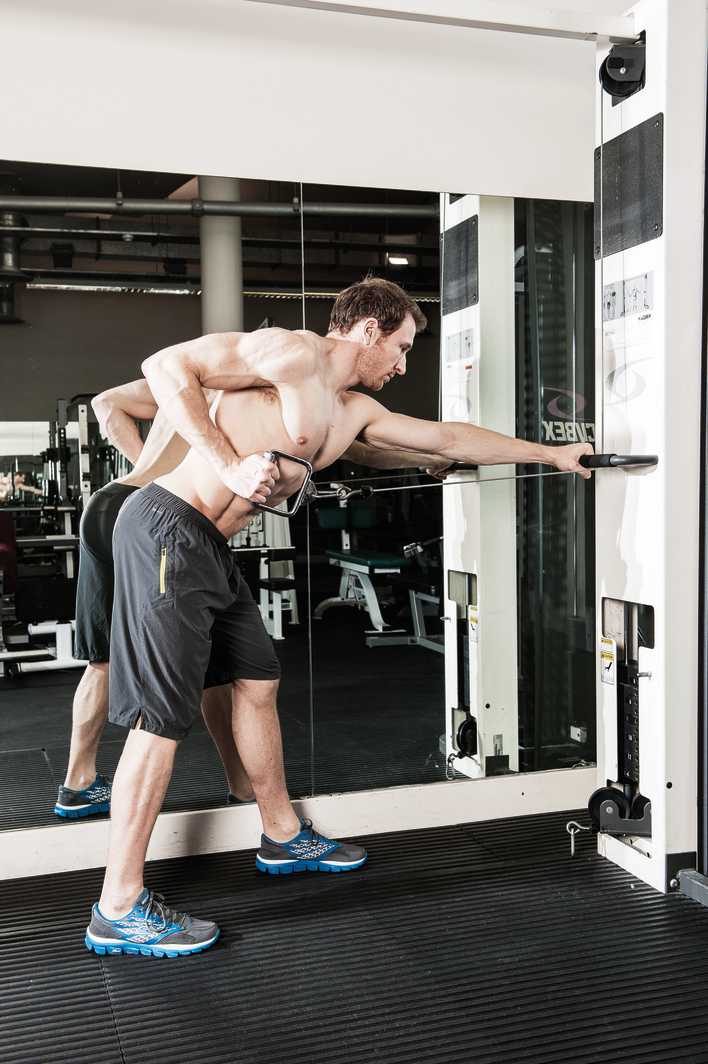
13. Single-Arm Cable Row
The cable keeps the tension on your target muscles throughout the move and forces your core to engage and stabilise your body.
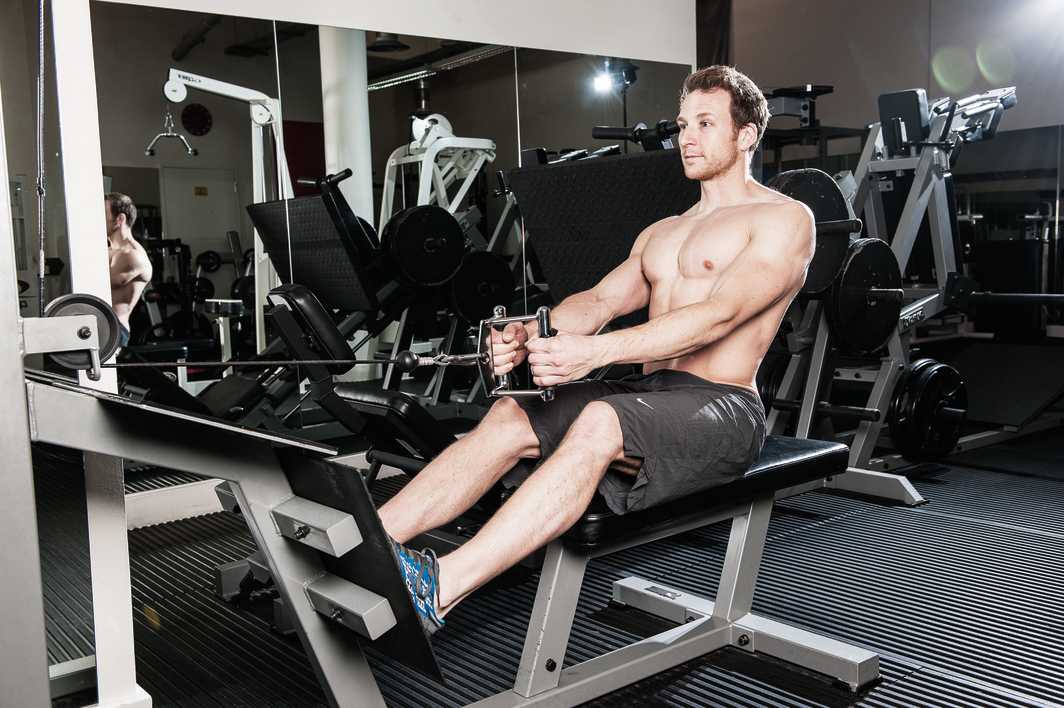
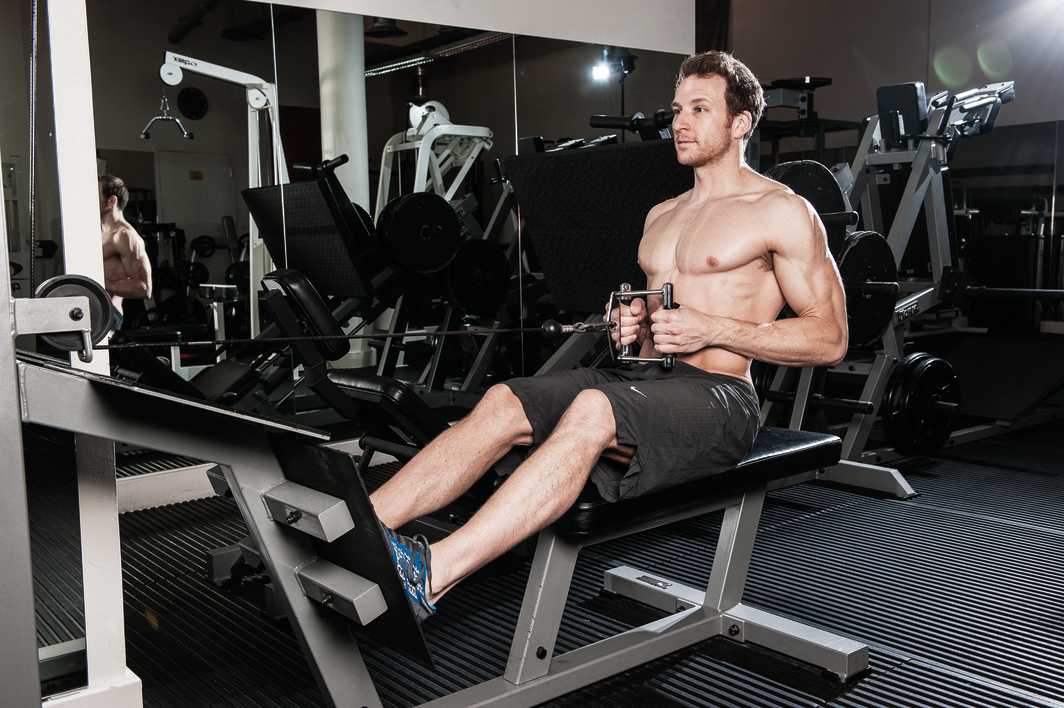
14. Seated Cable Row
Learn how to effectively target your upper back muscles and build your biceps with this seated move that allows you to go heavy while maintaining perfect form for maximum muscle gains.
- Sit on the bench with a slight bend in your knees. With a neutral grip, hold a double-D handle attached to the lower pulley of a cable machine.
- Ensure there’s tension in the cable before you begin.
- Pull the handle into your sternum, keeping upper-body movement to a minimum, and squeeze your shoulder blades together.
- Return slowly to the start.
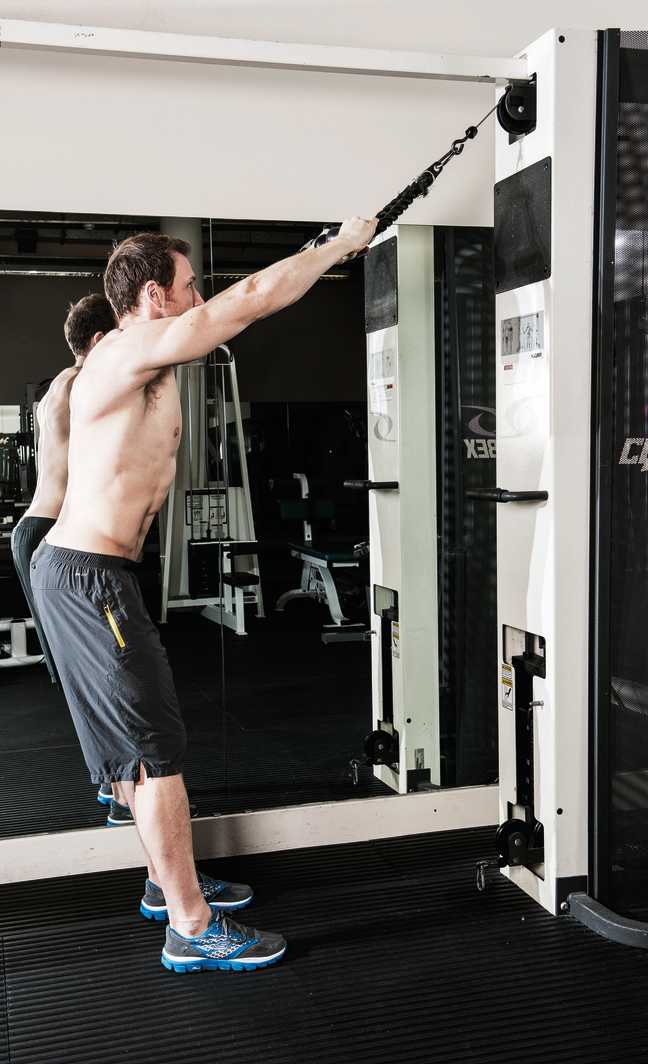
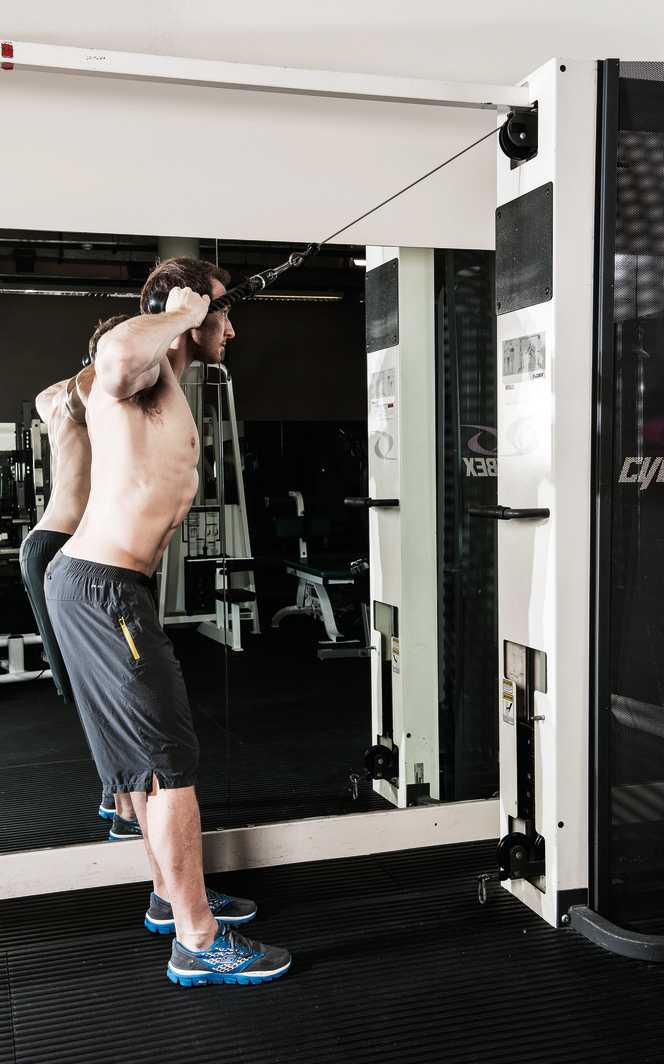
15. Rope Face Pull
Pulling the double handles to either side of your face hits your traps, rhomboids and rear delts effectively.
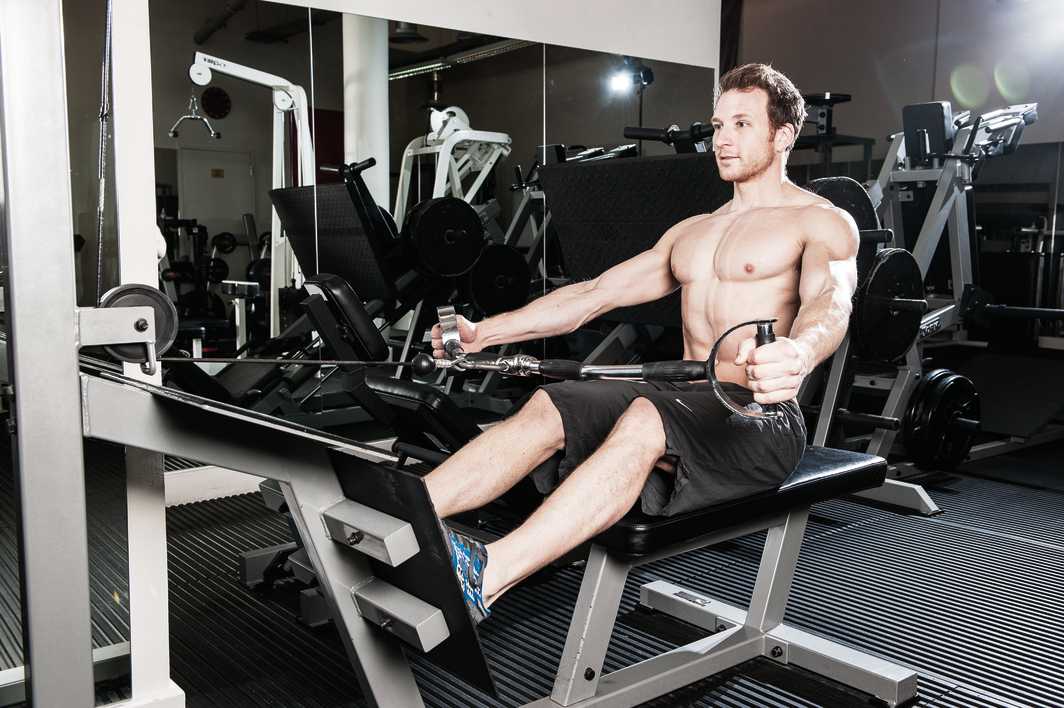
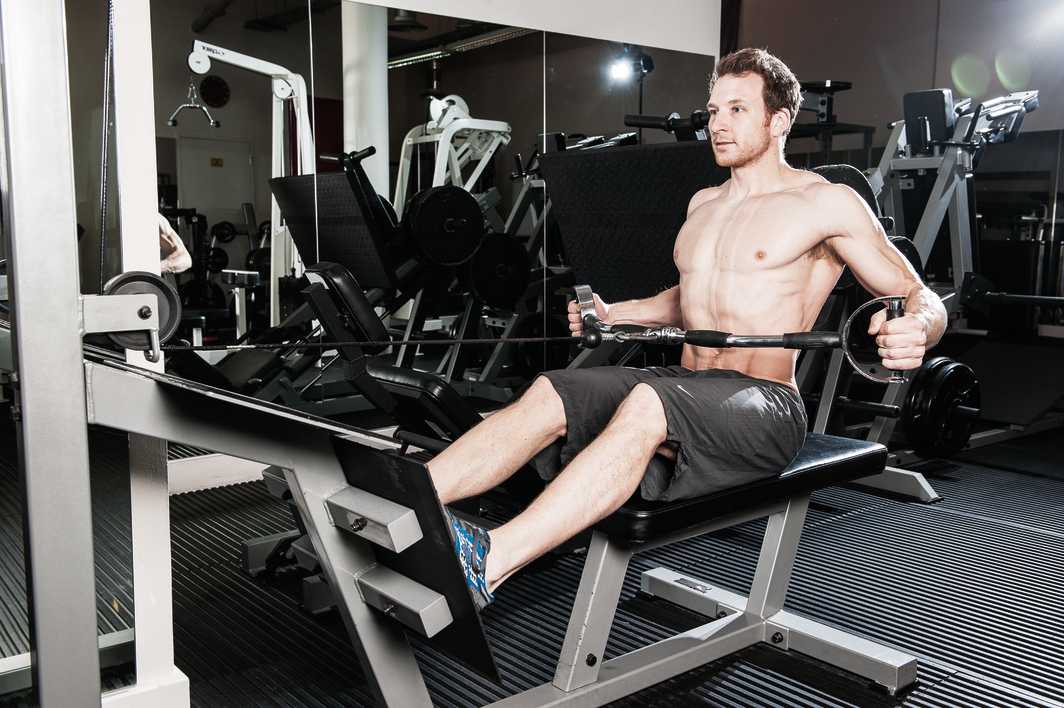
16. Wide-Grip Cable Row
Taking a wide grip on a straight bar removes your biceps from the equation and forces the back and rear shoulders to work harder.
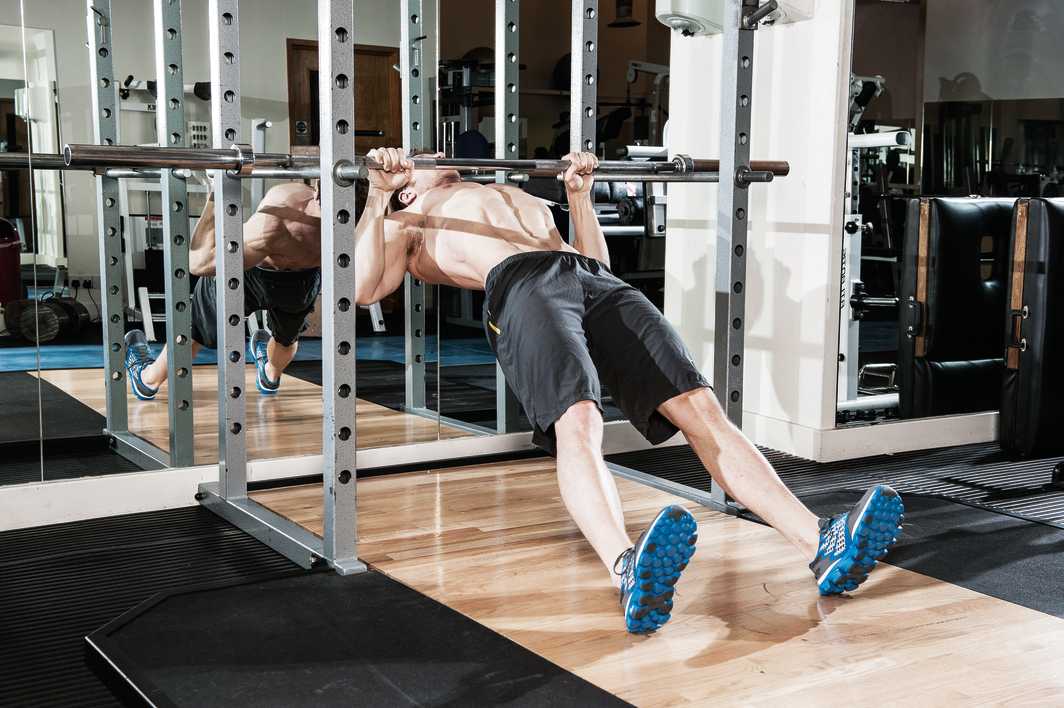
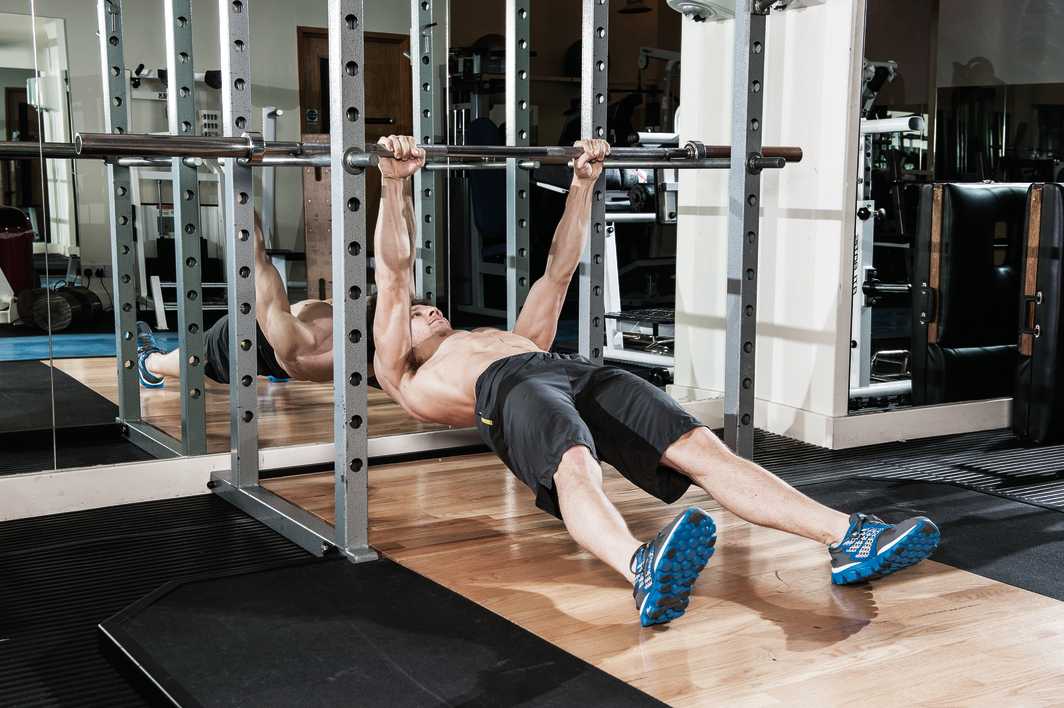
17. Inverted Row
Raise your chest to the bar to use your bodyweight and work your back and biceps.
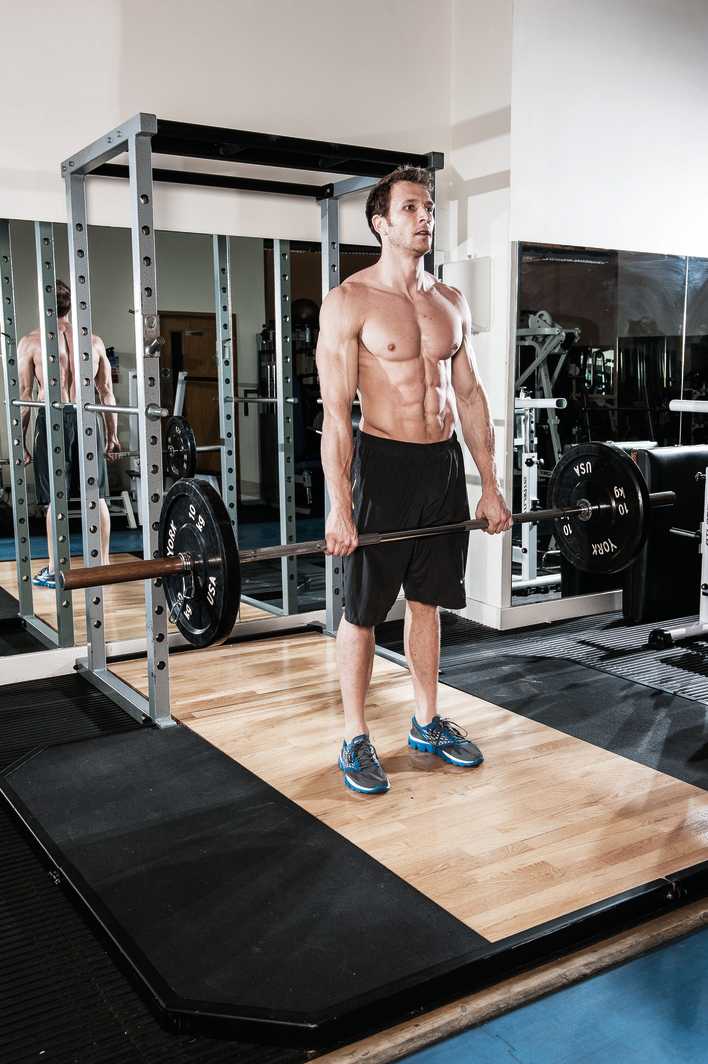
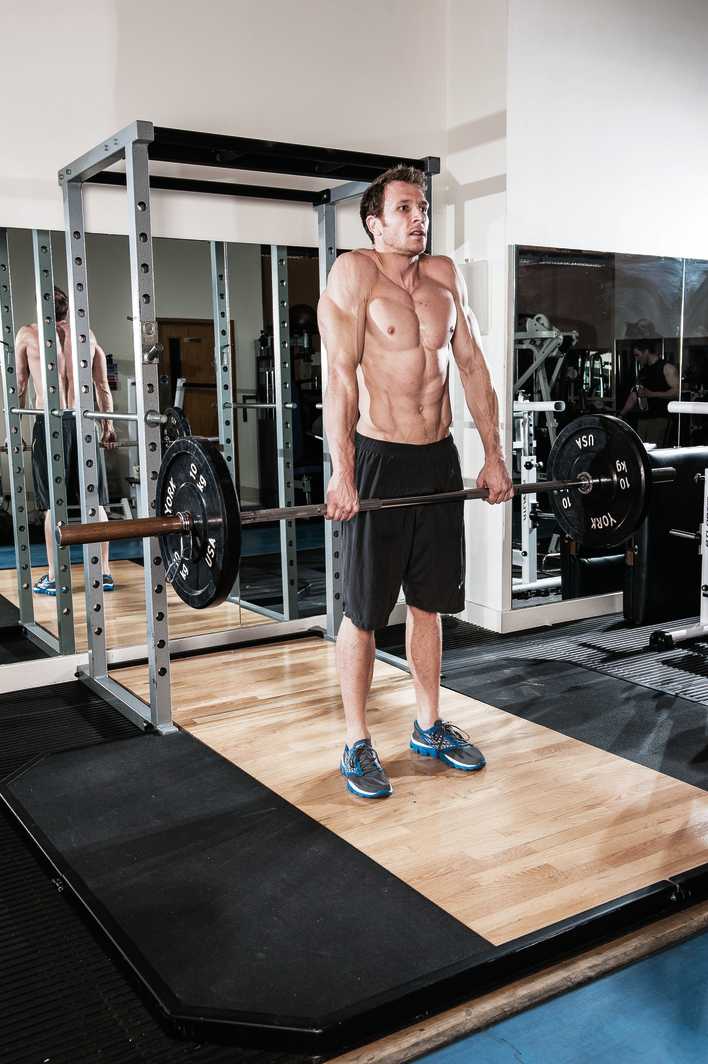
18. Barbell Shrug
Build big, strong traps with this move – the limited range of motion means you can lift heavy as long as you keep to strict form.
- Hold a bar with an overhand grip with your hands just outside your thighs.
- Keeping your core braced, chest up and a natural arch in your back, shrug your shoulders up towards your ears, keeping your arms straight.
- Hold at the top briefly then lower the bar back to the start position.
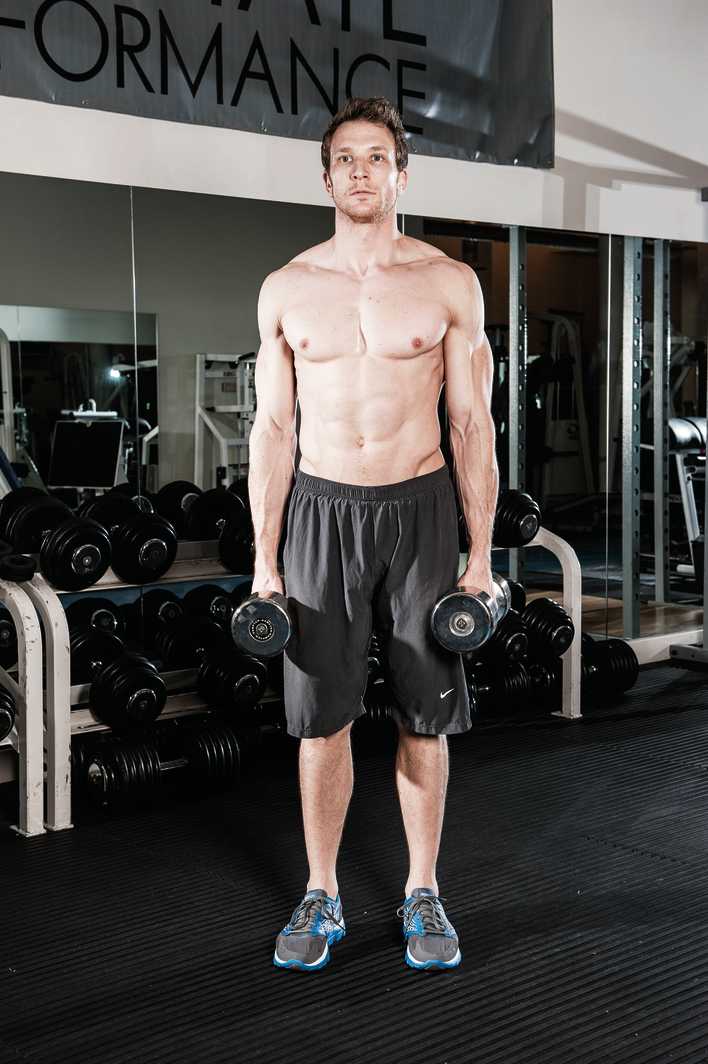
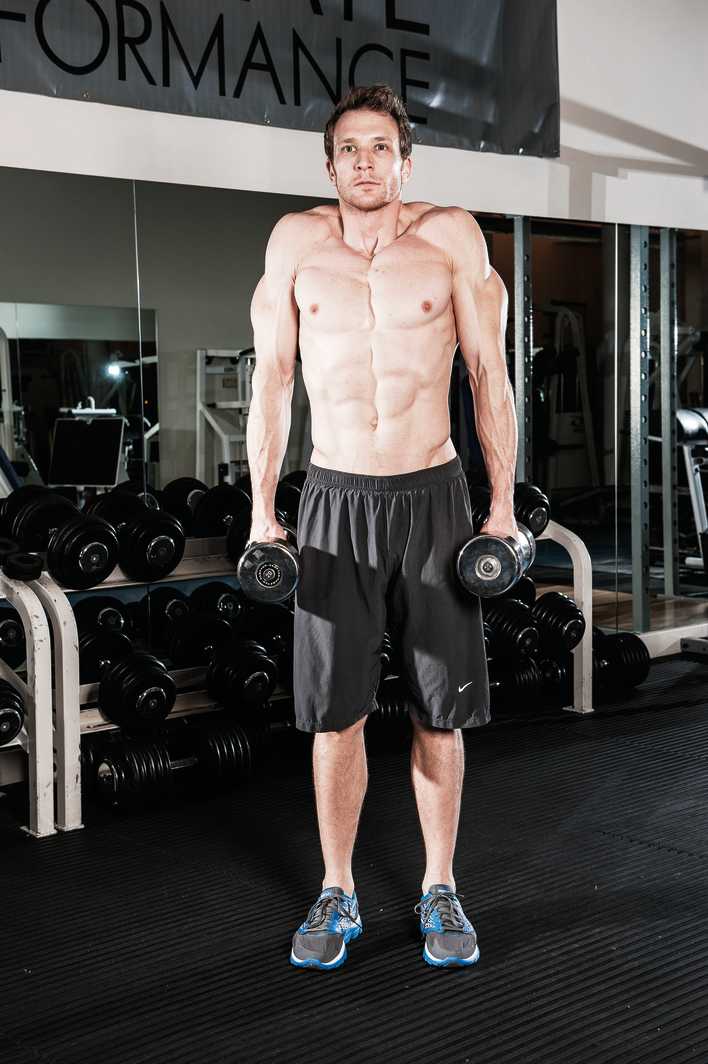
19. Dumbbell Shrug
Using dumbbells allows you to keep your hands by your sides for increased comfort, while also working each side of your upper back individually.
Related: Best dumbbell exercises for every body part
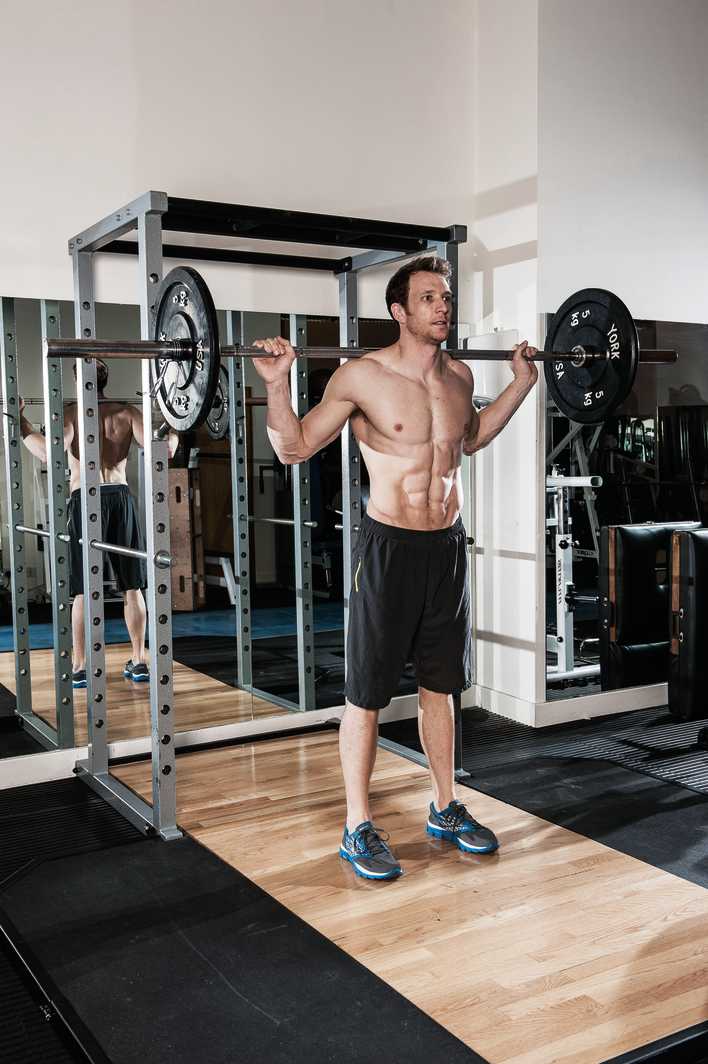
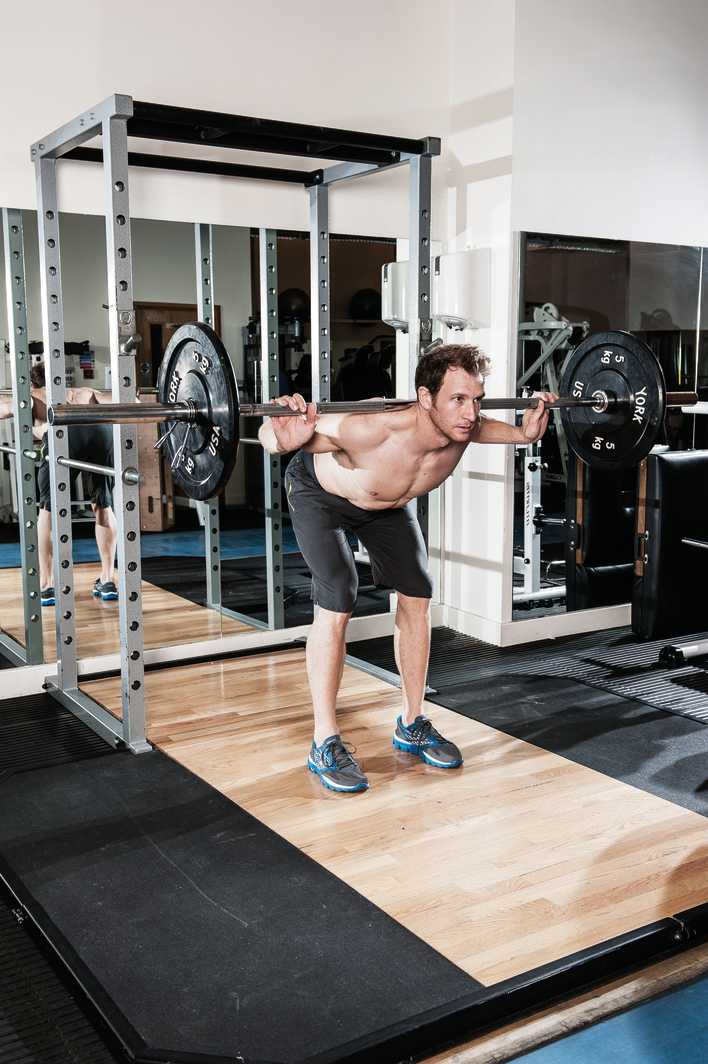
20. Barbell Good Morning
This move will strengthen the erector spinae muscles of your lower back, which will make your core stronger and assist the transfer of power between your upper and lower body.
- Stand tall with your feet shoulder-width apart with a light barbell resting across the back of your shoulders.
- Keeping your core braced and a slight bend in your knees, bend forwards from the hips – not the waist – as far as your hamstrings will allow, but not beyond horizontal.
- Return to the start position.
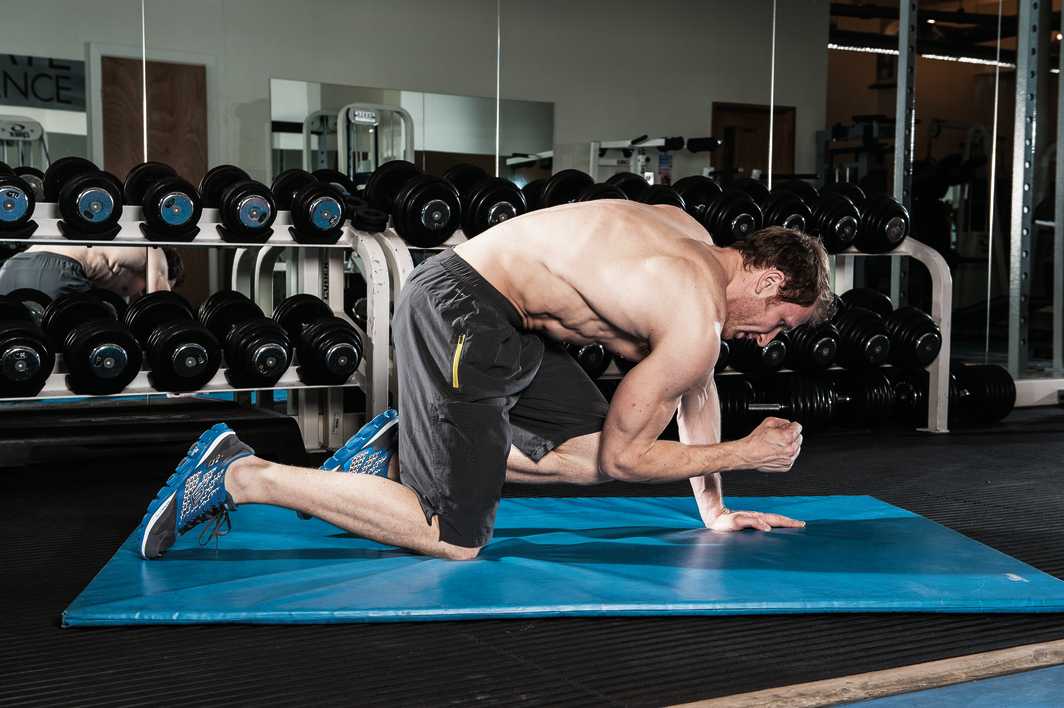
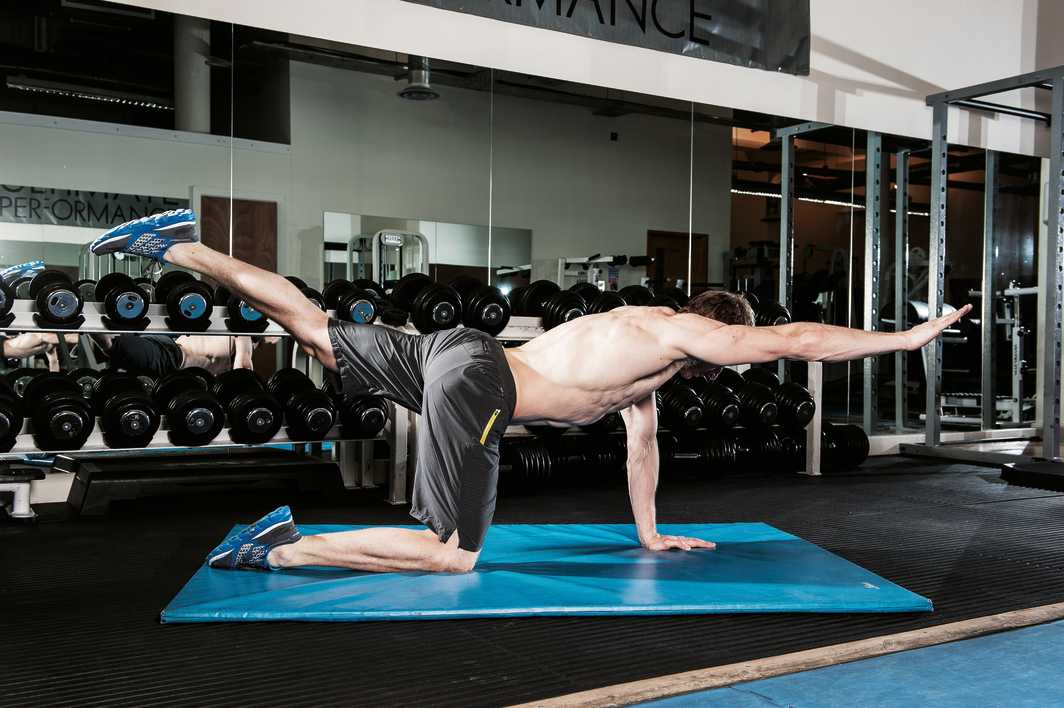
21. Two-Point Box
This simple move will improve the strength and stability of your lower back and core, which will allow you to perform other, more complex moves safely and effectively.
- Start with both knees and hands on the floor and your core braced.
- Extend your right arm and left leg until they are fully straight.
- Return to the start position then repeat with the opposite limbs.
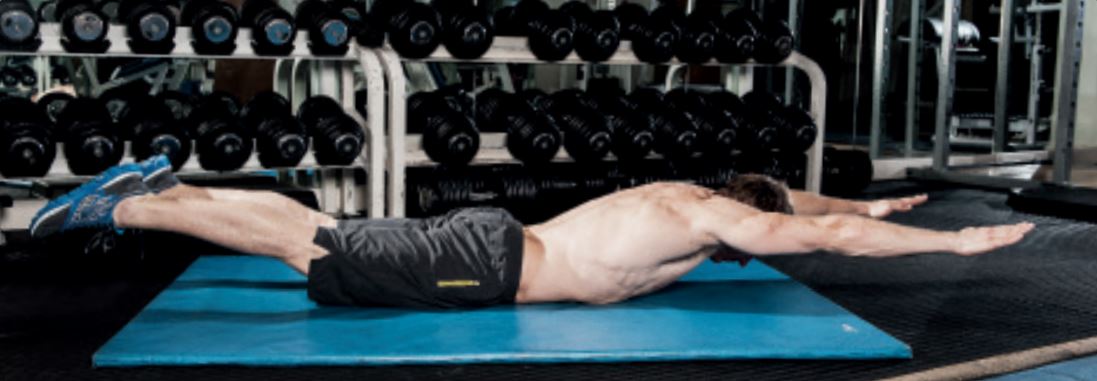
22. Superman Raise
Raising both arms when lying flat on the floor is an easy and simple way to work your lower back.
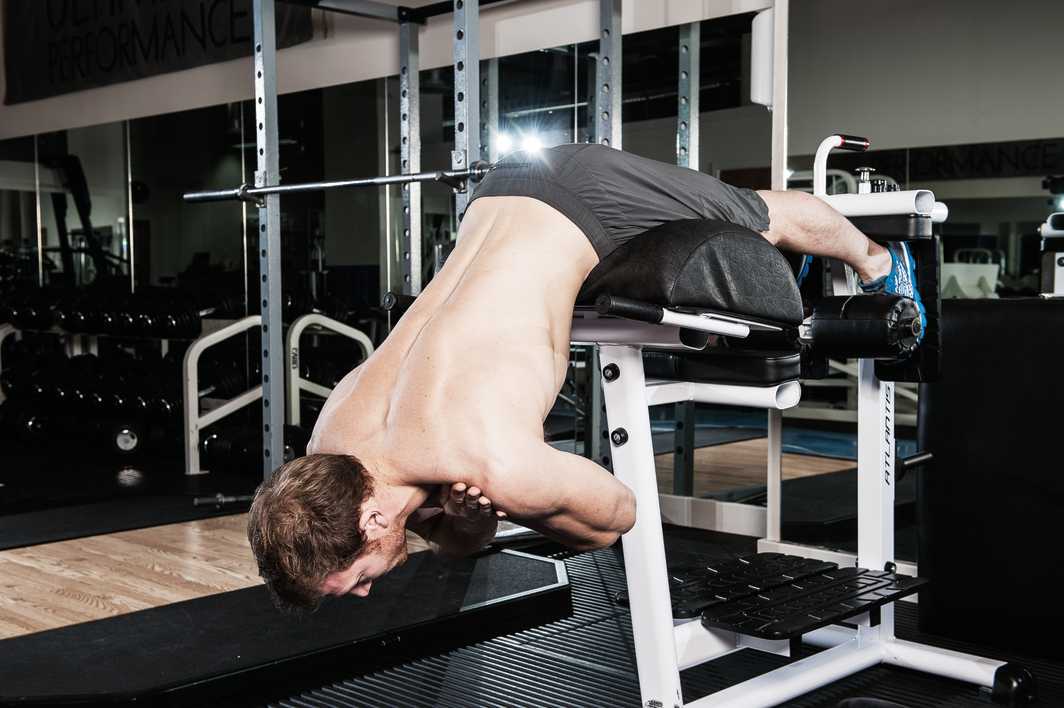
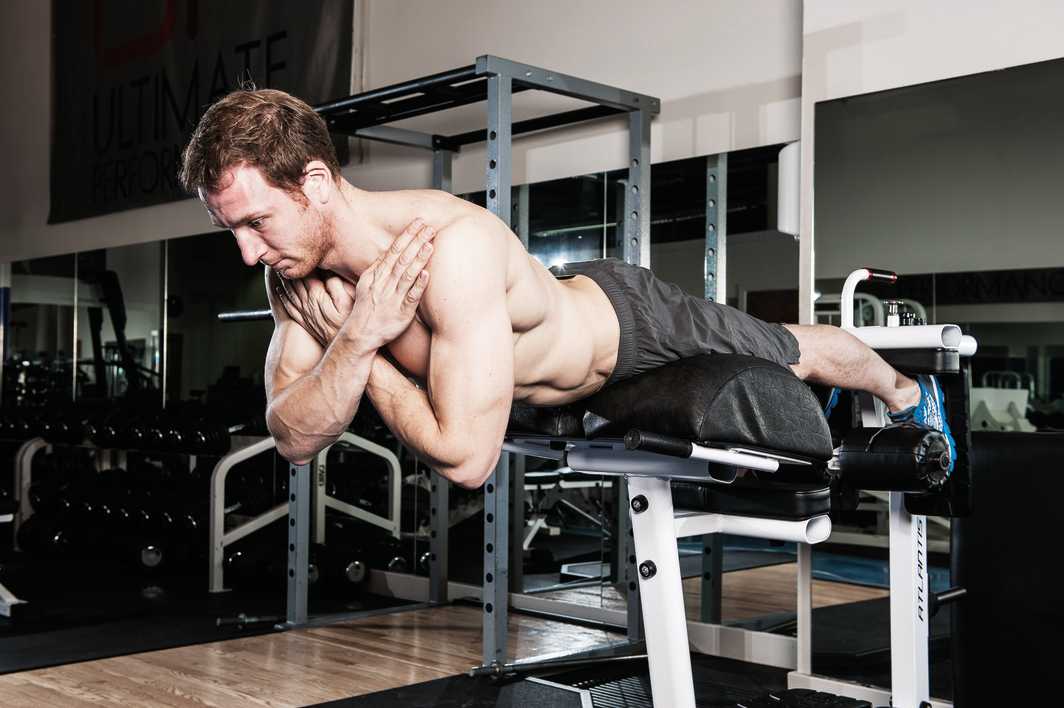
23. Back Raise
A surprisingly tough but effective bodyweight move that will strengthen your lower back so you can stay injury free and lift heavier on the big moves.
- Position yourself on the bench so your feet and thighs are supported.
- With your hands on your chest and your core braced, lower your torso as far as is comfortable.
- Use your lower back muscles to return to the start.
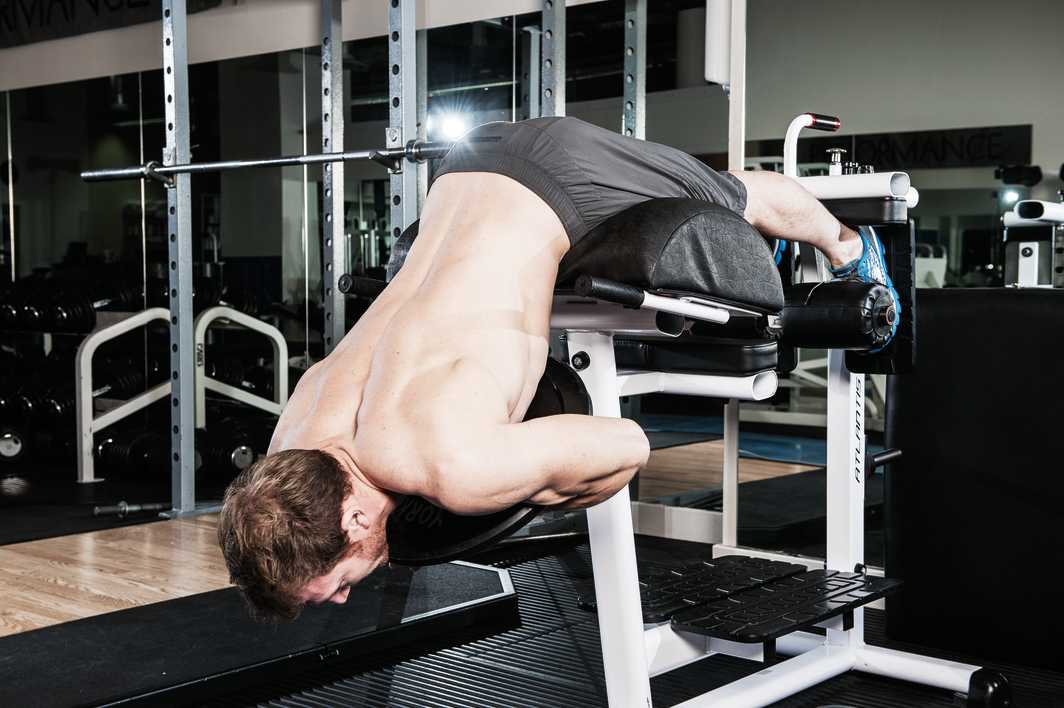
24. Weighted Back Raise
Holding additional weight across your chest makes this move even harder and more effective.
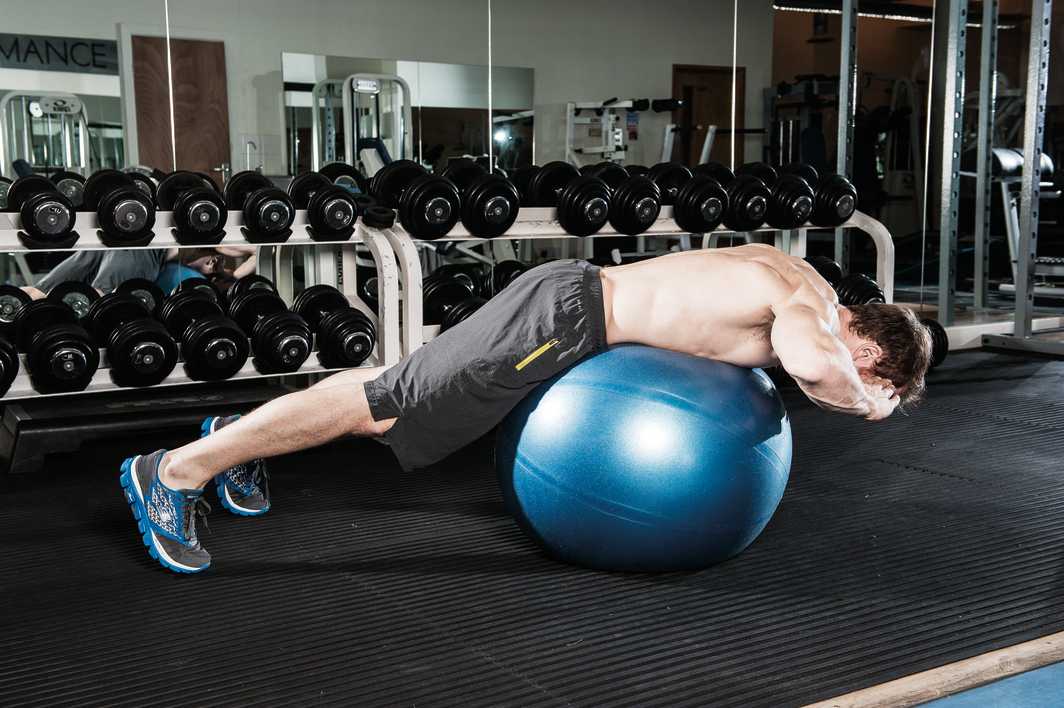
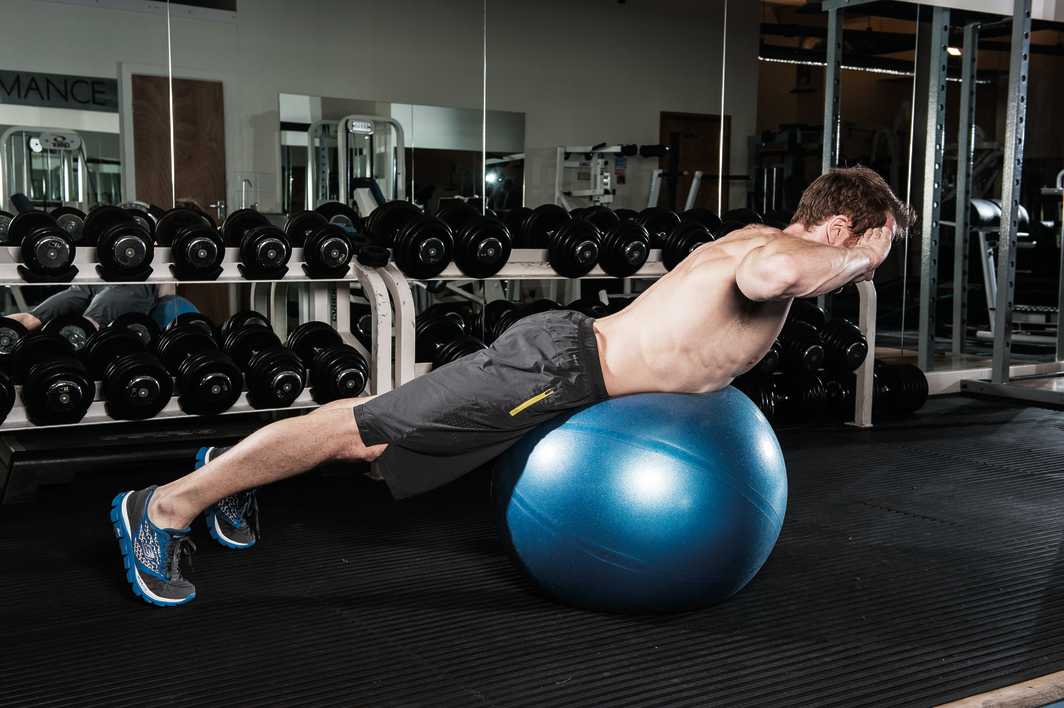
25. Gym Ball Back Extension
Using a gym ball makes the move easier by decreasing the range of motion, but you must still use your core to stay balanced.
Related: 9 best abs exercises for a rock-strong core